
Miriam Garfinkle
Activism, Articles, Interviews, Letters
Links
This page is dedicated to the memory of Miriam Garfinkle (1954 - 2018).
It provides links to Miriam’s articles and interviews, letters; accounts of her activism and organizing; stories from some of the occasions when Miriam’s activities landed her in the news; photo albums; and tributes to Miriam. There is a separate page, Moments with Miriam (PDF) — (HTML), on which more 100 people share stories of Miriam.
For more information, or if you would like to share items about or photos of Miriam, please contact Ulli Diemer.
Moments with Miriam: Memories, Stories, Tributes
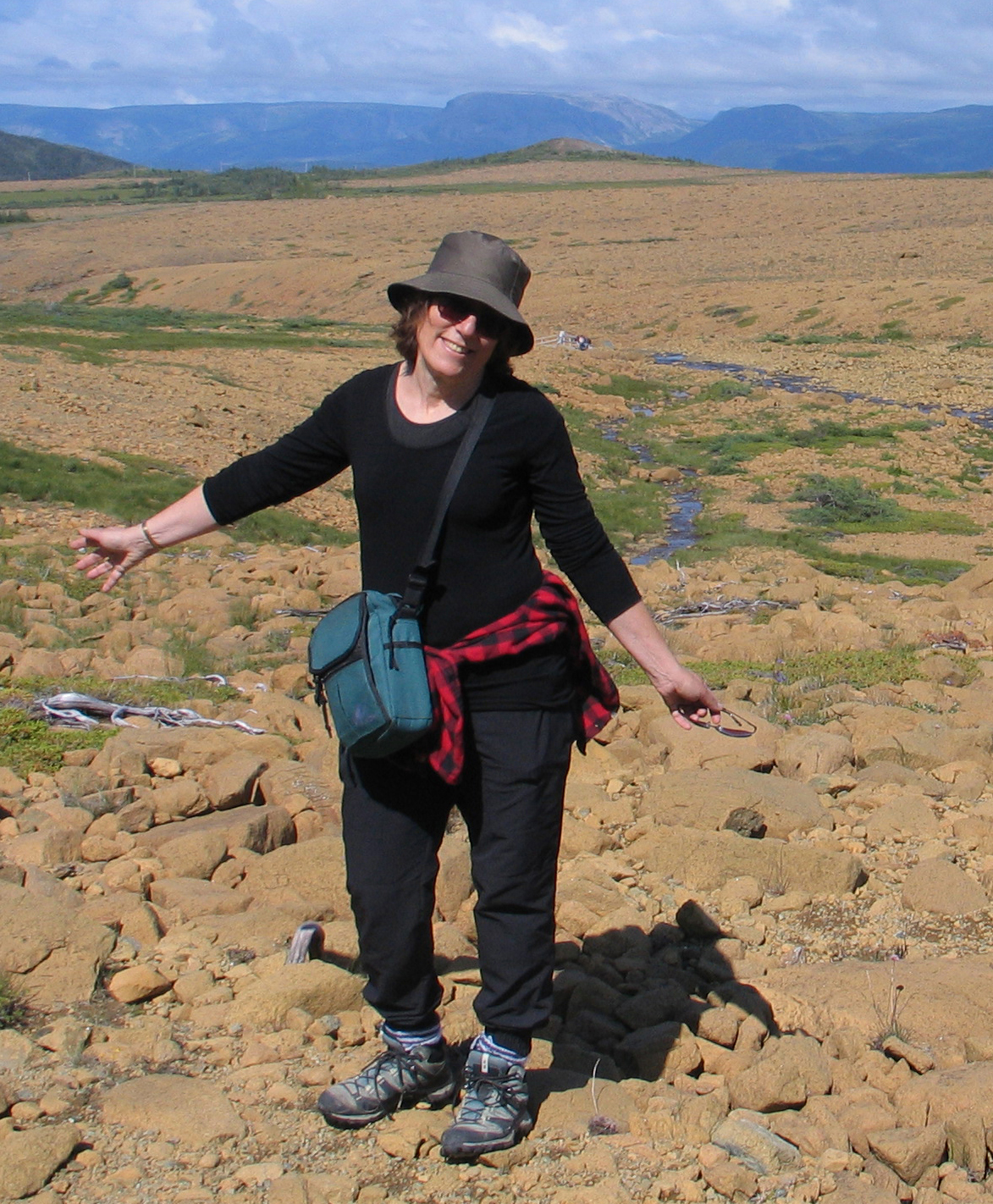
|
Moments with Miriam is where Miriam’s friends, family, and people whose lives she touched share their stories, memories, and photos. Click here to go to the PDF version of the Moments with Miriam page. The HTML version of this page is here. |
Tributes and Appreciation
Eulogy for Miriam. Ulli Diemer’s eulogy for Miriam, October 28, 2018.
Miriam’s Obituary. September 2018.
Trees for Life. Contribution to Trees for Life in memory of Miriam Garfinkle, September, 2018.
Celebrating Miriam Garfinkle. Robert Massoud, October 28, 2018.
Making mid-life changes
Judy Steed wrote this feature article about Miriam in December 2001.
Cards & letters from patients upon leaving her Spadina practice.
2000.
Celebrating Dr. Miriam Garfinkle.
Reflections by Ayesha of the Immigrant Women’s Health Centre. 2018.
Moments with Miriam. There is also an HTML version of the Moments with Miriam contributions here.
Miriam Garfinkle Lane
The City of Toronto has named a laneway, Miriam Garfinkle Lane, in Miriam’s honour.
M is for Miriam. A children’s book about Miriam, written by Ulli Diemer and illustrated by Emma Lightstone. 2020.
Miriam Garfinkle Social Justice Fund. A fund established to honour Miriam’s lifetime of work for social justice.
Organizing & Activism
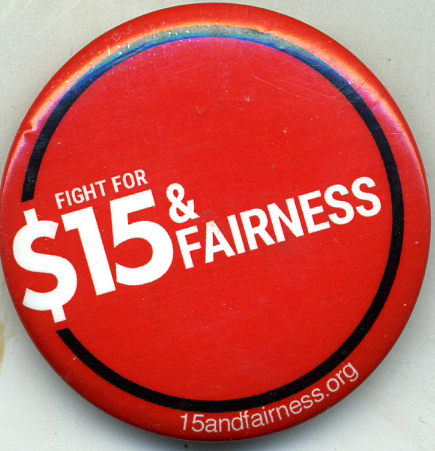
Miriam was a long-time supporter of struggles to increase the minimum wage in Ontario. One of the buttons she used to wear called for the minimum wage to be raised to $10. Some 20 years later, in 2016 - 2018, she participated in handing out leaflets on street corners to raise awareness of the issue; by this time she was wearing a button calling for the minimum wage to be raised to $15.
When some Tim Horton’s franchises cut workers’ benefits in 2018 after Ontario’s minimum wage increased, Miriam, despite having Stage 4 cancer, went out to picket and hand out flyers in front of Tim Horton’s outlets.
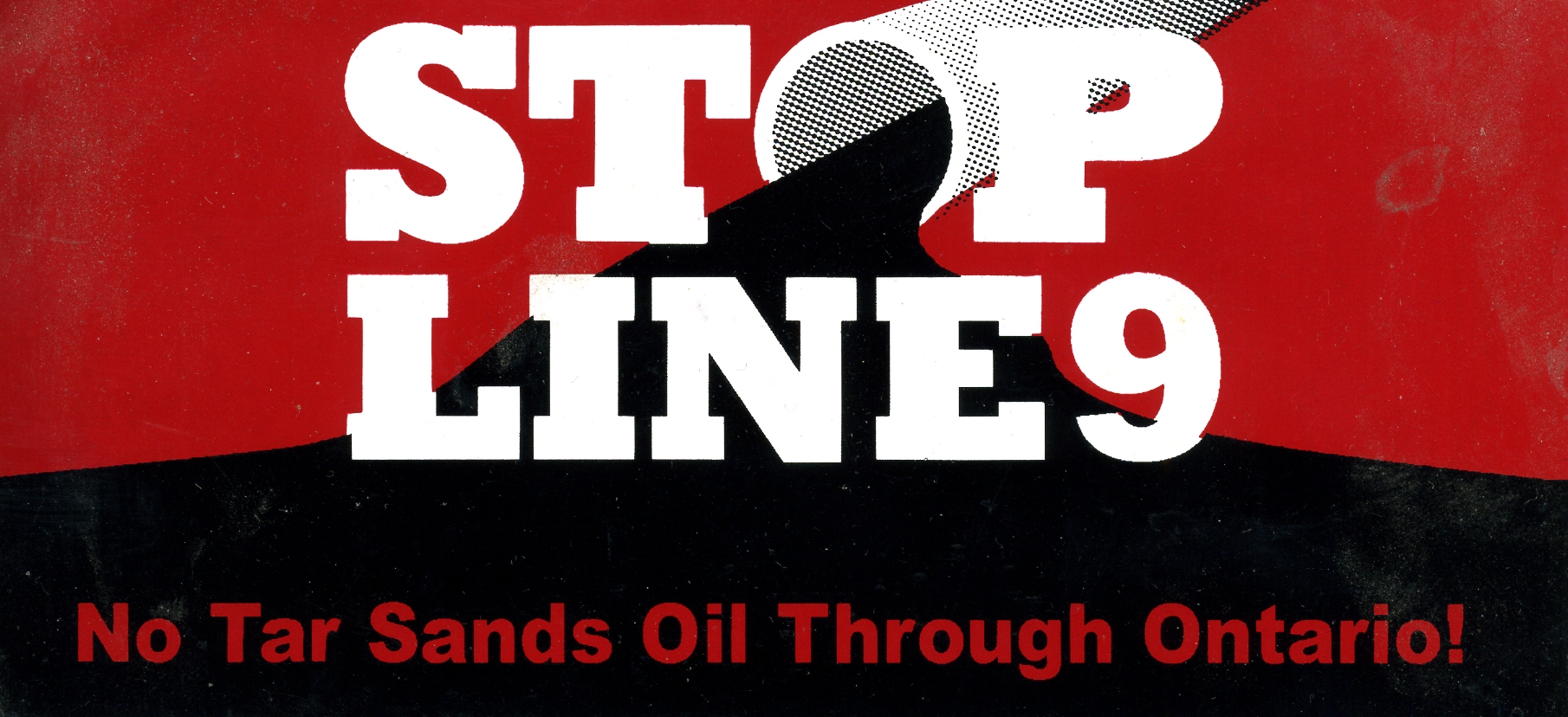
Handing out flyers at the Bloor Hotdocs Cinema.
September 16, 2015: Miriam and a friend hand out flyers opposing the Line 9 pipeline on the sidewalk near the HotDocs cinema on Bloor Street in Toronto. The occasion is the screening of This Changes Everything, a film with an anti-tarsands, anti-corporate message, being shown as part of the Toronto International Film Festival (TIFF). A TIFF employee comes out to tell them they are not allowed to hand out leaflets (on public property!) because TIFF sponsors have exclusive marketing rights to reach the people lined up waiting to get in. Miriam’s friend argues with the TIFF hack, while Miriam continues handing out leaflets to the people lined up, who are all the more receptive once they’ve learned they aren’t supposed to receive them. For a copy of a flyer explaining Line 9, click here.
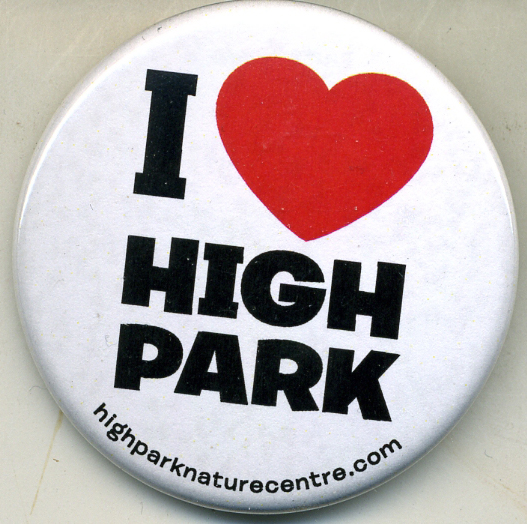
Defending High Park and other natural areas
One of Miriam’s favourite city destinations in Toronto was High Park. She loved spending time there (chickadees! woodpeckers! owls! turtles! wood ducks! trees! lupines!) but she was also concerned about the degradation of the natural environment in High Park, and organized via the Toronto Field Naturalists and a friends of High Park group for action on this issue. Her organizing helped to lead to the formation of a city-wide coalition of nature and stewardship organizations working to preserve the natural environment in parks and other natural areas in Toronto. Nancy Dengler of the Toronto Field Naturalists wrote: “I know that this only part of Miriam’s legacy, but it exemplifies the significant effect her activism.”
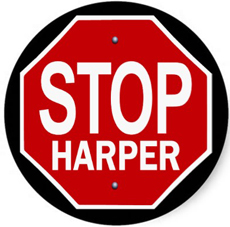
What is Stephen Harper doing to Canada? How can we stop him?
An anti-Harper flyer handed out by Miriam and friends, September 2015.
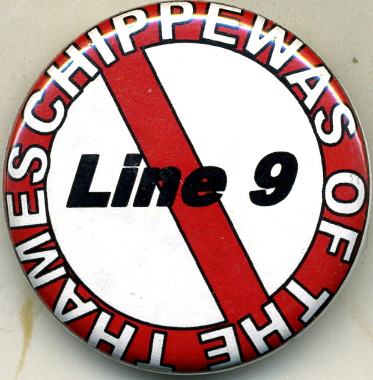
Chippewas of the Thames court case
The Chippewas of the Thames First Nation challenged the legality of Enbridge's Line 9 pipeline going through their territory in a case that went to the Supreme Court. Miriam did organizing to help get support for their cause, and contributed to them financially.
In a letter she wrote to supprt their cause in October 2016, Miriam wrote: “The case that the Chippewas of the Thames is taking to the Supreme Court of Canada strikes at the heart and soul of this country’s relationship with the indigenous people and their rights and the government of Canada’s duty to consult. This also applies to the Clyde River appeal.
I am also so very grateful to the indigenous people who are courageously acting to protect the water, the air, the land and present and future generations. They need and deserve our support and solidarity. I hope many people will donate to this extremely important legal case.”
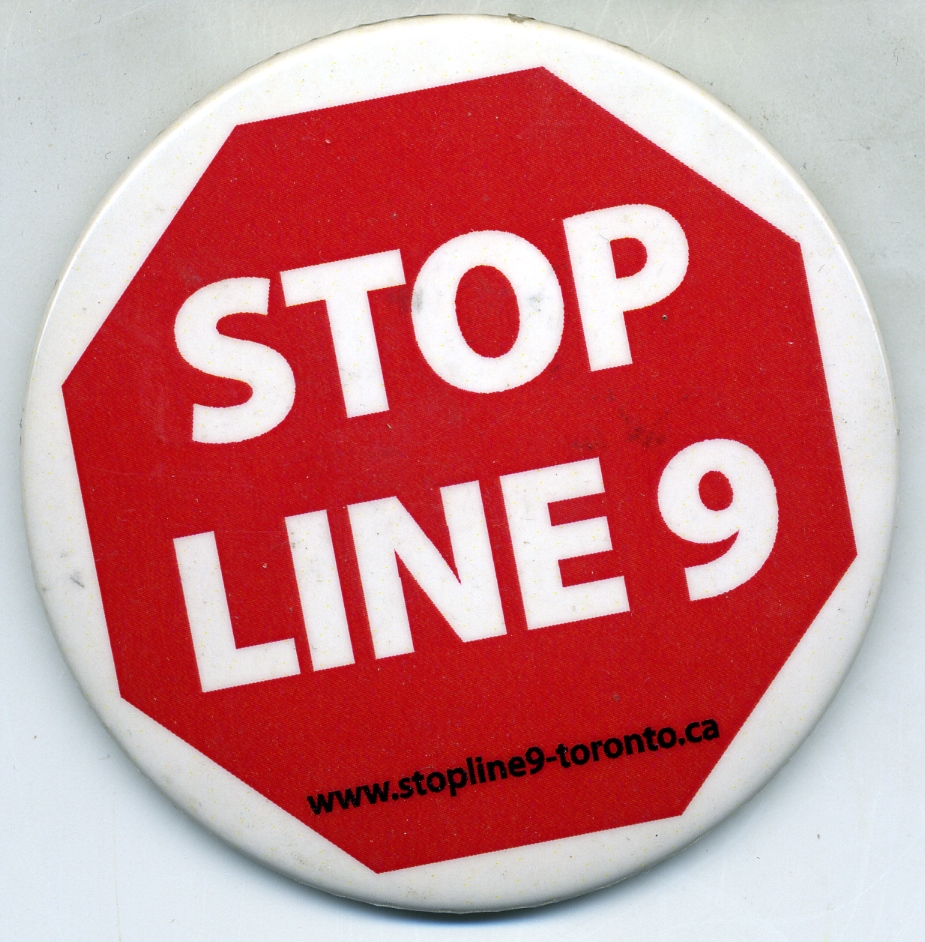
Miriam devoted a great deal of energy to the climate crisis that we face. She focused her work especially on the Alberta tar sands, the dirtiest energy project on the planet, and on the plans to expand existing pipelines and build new pipelines to carry it to markets. She fought against pipelines partly because of the threat they posed to water and land, and partly because she believed that tar sands oil must stay in the ground if we are to have any chance of averting the worst effect of the growing climate crisis.
Enbridge’s proposed Line 9 expansion to carry tar sands oil was opposed by activists in Ontario and Quebec, and Miriam worked extremly hard on that campaign. She took part in planning meetings and in many actions, ranging from leafleting and picketing to a die-in at a subway station.
Miriam was also involved in other climate-change campaigns and actions, such as the Toxic Tour in Aamjiwnaang, in ‘Chemical Valley’ near Sarnia.
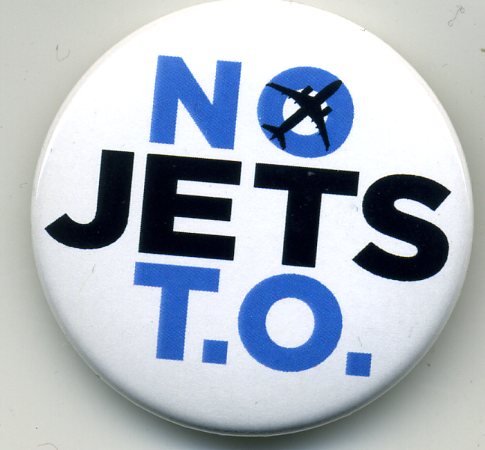
The campaign against the attempt to bring jets to the Toronto Island Airport was something Miriam became quite involved in. She made deputations to Toronto Public Health and City Hall, spoke to the media, wrote articles and letters, and appeared in a film about the issue.
While the campaign was focused specifically on jets, Miriam made clear her position that there should be no airport at all on the Toronto Islands. She pointed to the documented negative health impacts of the airport on waterfront residents, as well as the need to fight climate change by significantly reducing air traffic.
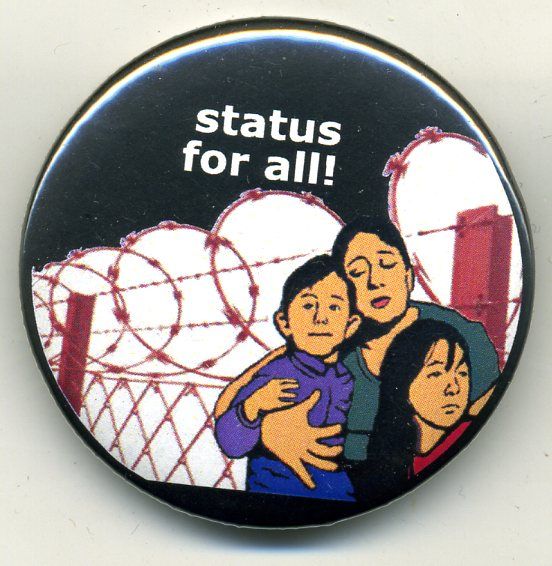
Incarceration of immigration detainees
Miriam was outraged by the incarceration of immigration detainees and protested, by letter, in demonstrations, and at the Lindsay Detention Centre (on a day when the temperature was minus 25).
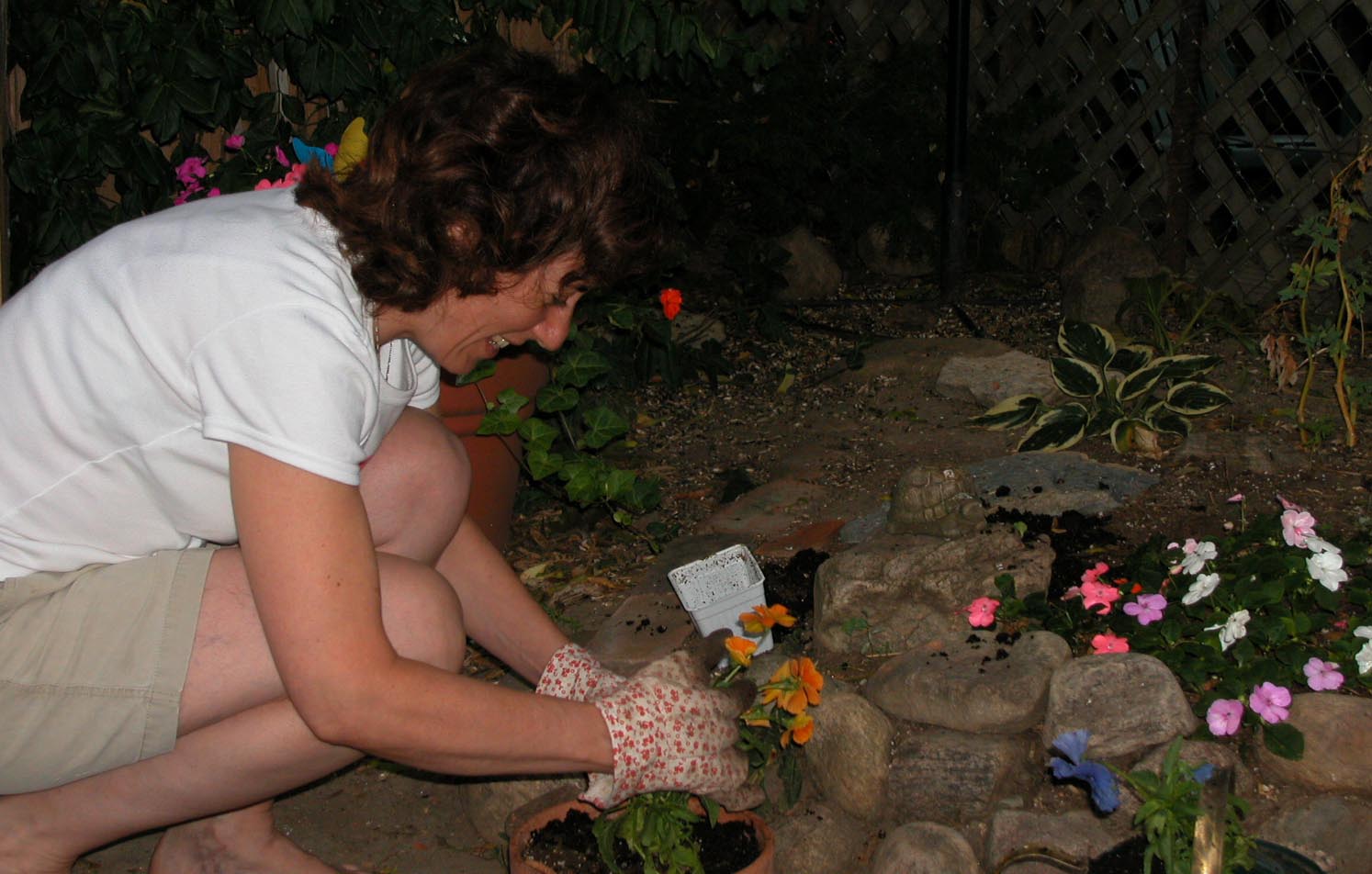
Community gardening
Miriam loved gardening from the time she was a child, when her father, the gardener in the family, gave her some space in the yard to grow things in. She grew corn, enough to feed everyone in the family, at least for one meal. She was proud and excited, and she remained a gardener all her life. She grew flowers, bushes, and, where space and sunlight permitted, vegetables. She lamented that her small yard was shady, and full of tree roots, making it was difficult to grow very much, but in truth, she created a garden that was lush and lovely, and widely admired.
When she retired, she was able to get a plot at a community garden in her neighbourhood, and she was able to grow vegetables on a larger scale. Ever the activist, she was concerned that the membership of the community garden was overly white and middle-class, and urged her fellow gardeners to do more outreach to the diverse neighbourhood surrounding the garden, as well as to the nearby seniors’ residences.
In addition, Miriam also liberated a garbage-strewn strip of land in the laneway behind her home, and created a garden there for members of the local community to enjoy.
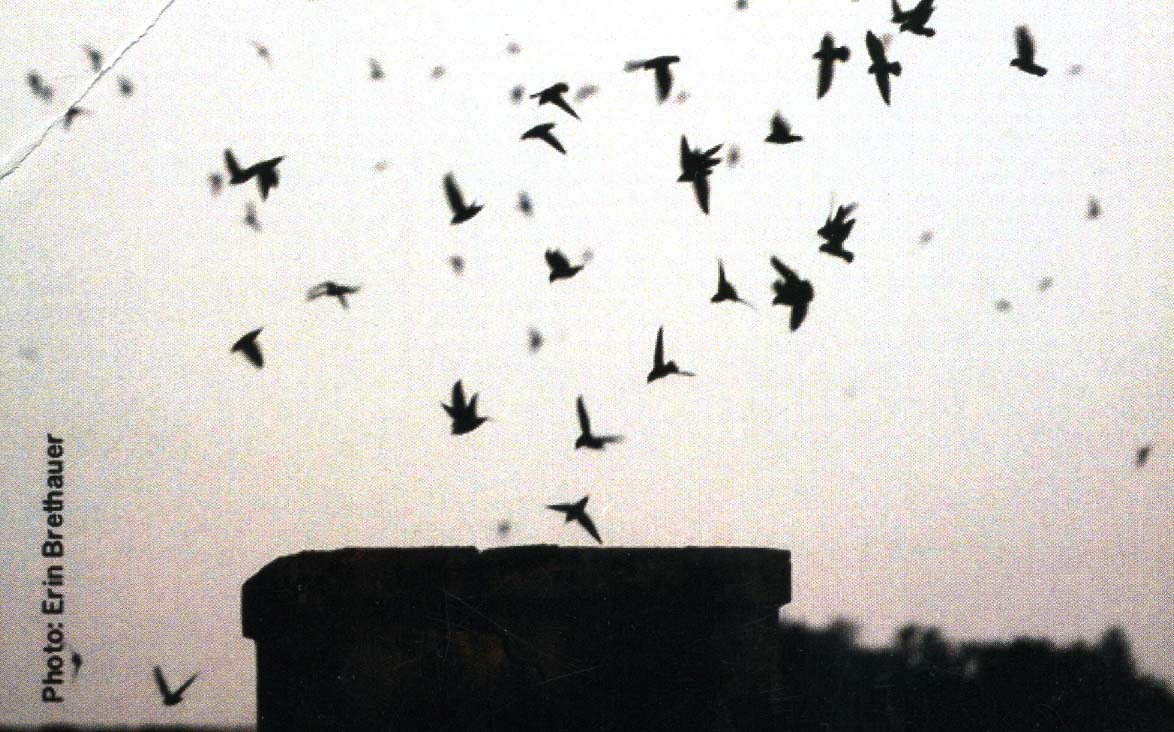
A chance encounter with a group of young birdwatchers in the Rouge Park introduced Miriam and Ulli to the pleasures of swift-watching: standing staring up at a chimney shortly before dusk, waiting to see chimney swifts plunging into their roosting chimneys for the night.
A couple of days later, Miriam and Ulli headed over to St. Anthony’s Church for their first swift-watching experience. Some 50 swifts flew into the chimney that night. Miriam especially was hooked. From then on, she devoted many hours to working as a citizen scientist: observing and documenting the swifts’ behaviour in order to contribute to a body of knowledge that could help us to protect these threatened birds – and many other species – in the face of habitat loss and climate change.

Die-in in front of Israeli Consulate in Toronto. August 7, 2014.
In August 2014, in the midst of Israel’s campaign of mass murder in Gaza, 40 people, including Miriam, disrupted traffic in front of the Israeli consulate in Toronto.
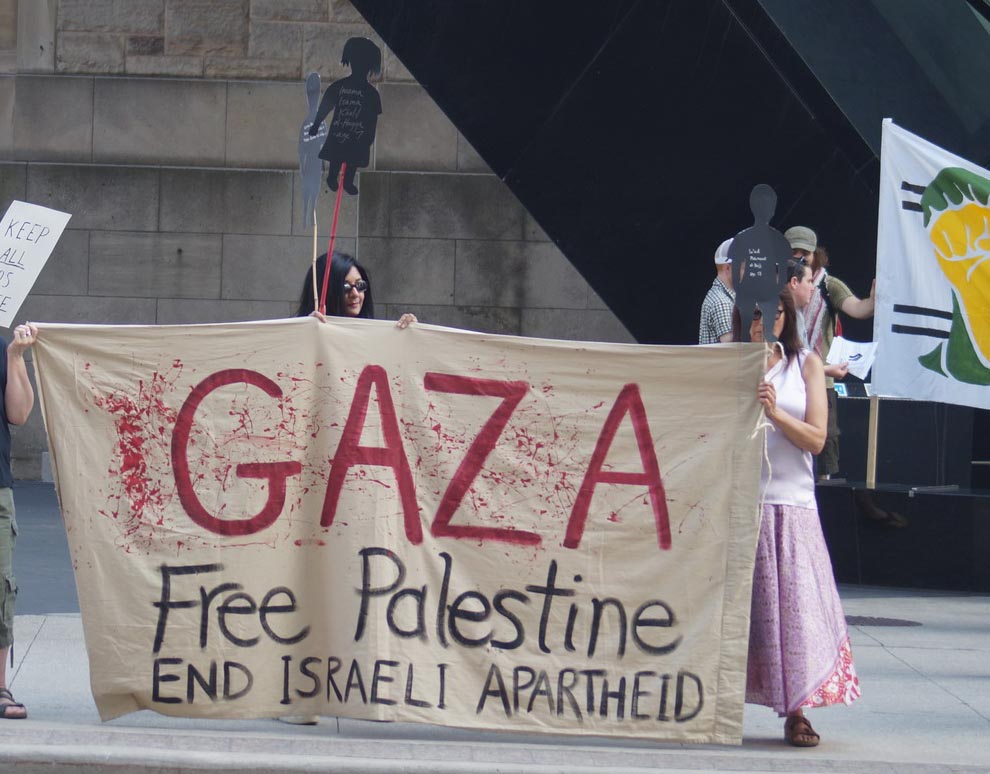
Continuous protest at Israeli consulate in Toronto. July 24, 2014.
On July 24, 2014, people of conscience including Muslims, Jews, and Christians, came together at the Israeli consulate for a three day continuous vigil to call attention to the frightening slaughter of the Palestinian people in Gaza and condemn both the Israeli government and the complicity of Canada. Miriam was one of those protesting, day and night, in front of the consulate.

Occupy Toronto was a protest and demonstration that began on October 15, 2001. It was part of the Occupy movement in a number of cities, which protested against the concentration of wealth in the hands of a tiny minority (“the 1%”), inequality, and the influence of corporations and lobbyists on government.
In Toronto, the initial demonstration, comprising several thousand people (Miriam and Ulli among them) headed to St. James Park, just east of the downtown core. People then pitched tents in the park and began a round-the-clock prolonged occupation, lasting several weeks, as part of a strategy of maintaining an ongoing visible protest. Miriam and Peggy both brought tents and slept in the park on several occasions.
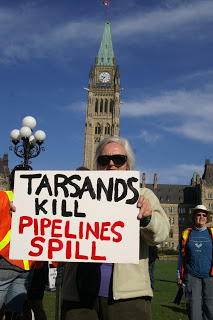
Ottawa Action Against the Tar Sands. September 26, 2011
Miriam travelled to Ottawa in September 2011 to participate in a major protest on Parliament Hill against the tar sands at which more than 200 people were arrested.
Watch a video on the event produced by Greenpeace here.
Read a report on the event here.
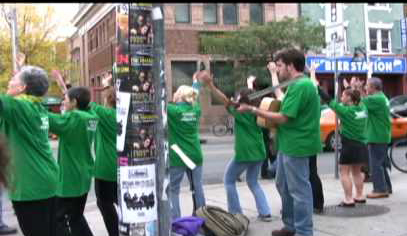
Aroma Espresso Bar Protests. 2010 - 2011.
Aroma Espresso Bar is part of an Israeli-owned chain. One of Aroma’s branches is in Ma’aleh Adumim, a large Israeli settlement in the occupied Palestinian territories. Anti-apartheid activists have called for a boycott of Aroma as part of a larger movement by Palestinian civil society to find non-violent means to end the occupation and apartheid.
1) Aroma protest: Toronto: Bloor & Albany. September 2010 (video).
2) Aroma protest: Toronto: Eaton Centre. December 2011 (video).
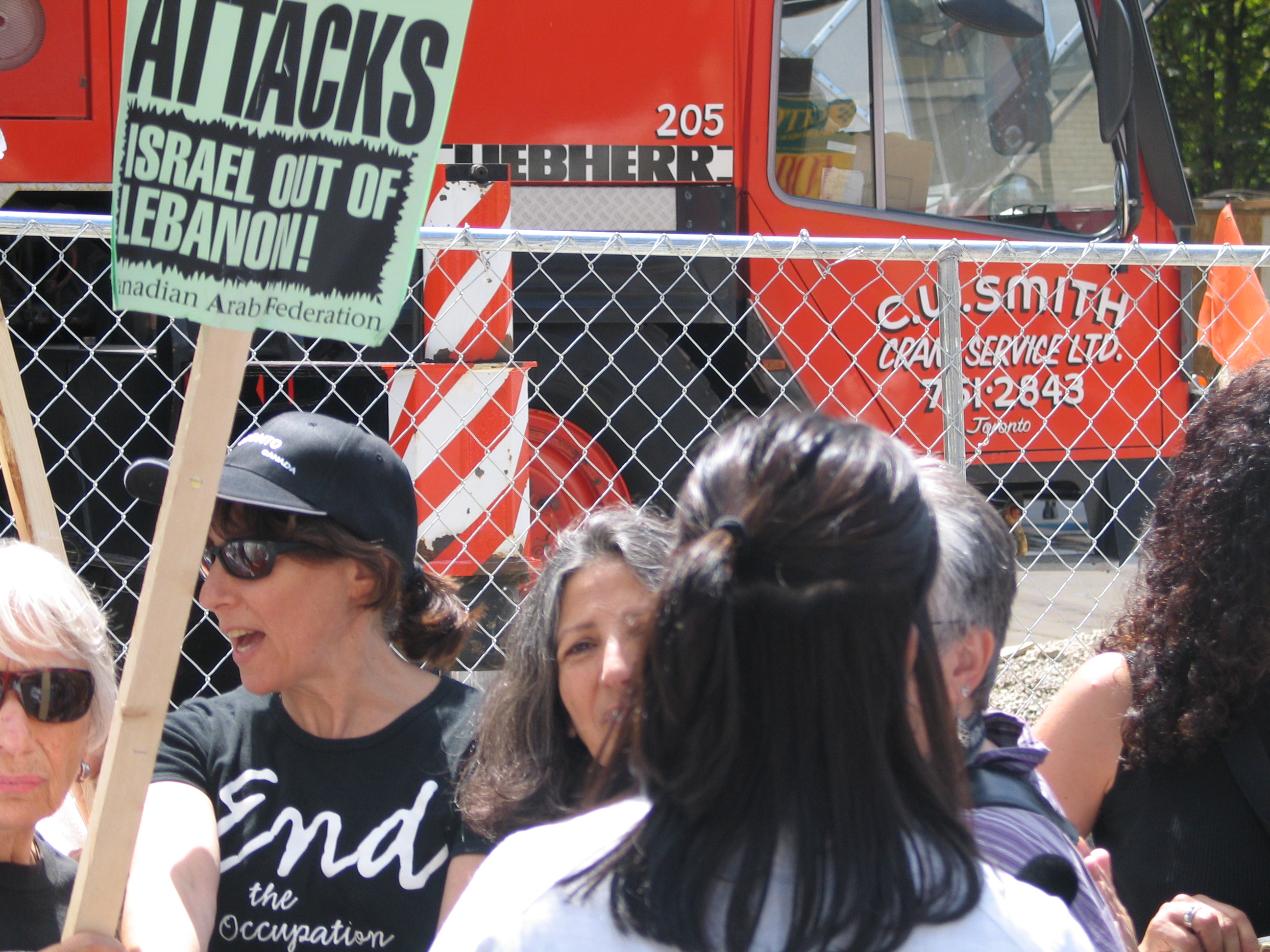
Protesting against the Israeli invasion of Lebanon, 2006.
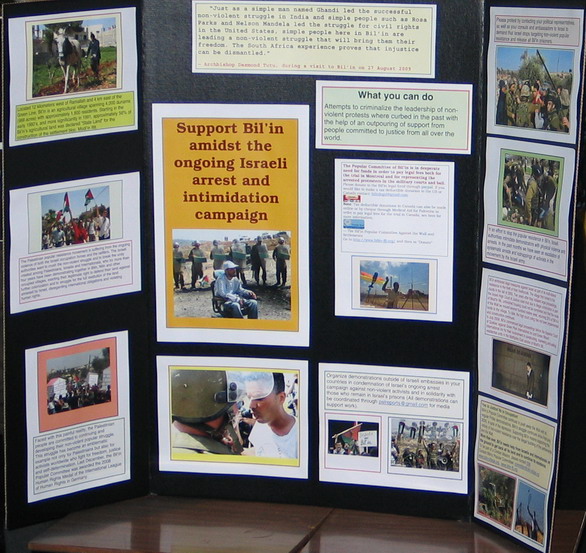
In 2009, Miriam became involved in supporting the village of Bil’in in the occupied Palestinian territories. Bil’in has been engaged in an ongoing non-violent struggle against the building of illegal Israeli-only settlements on Bil’in’s lands.
Bil’in launched a court case in Canadian courts against two Canadian construction companies which were involved in building the illegal settlements.
Mohammed Khatib, one of the leaders of the Bil’in resistance, and Emily Schaeffer, an Israeli lawyer committed to supporting Bil’in’s legal case, toured Canada in June 2009.
Mohammed stayed at Miriam and Ulli’s house while he was in Toronto, and the house (and garden!) became a meeting place for others involved in the cause.
In 2010, Miriam went on a solidarity tour to Palestine, and was able to visit Bil’in and meet Mohammed and his family and other members of the resistance.
Jewish Women Occupy Israeli Consulate in Toronto. January 7, 2009.
In the midst of the brutal Israeli attack on the people of Gaza which began on December 27, 2008, a group of Jewish women occupied the Israeli consulate in Toronto. Miriam was the media spokesperson for the group, standing outside the building doing media interviews while the occupation was underway.
Arrests underway in Toronto Israeli Consulate Sit-in. January 7, 2009.
Video: Jewish Women Occupy Israeli Consulate in Toronto. Video includes segment of Miriam speaking to the media.
Audio: Media interview during the January 7, 2009 Israeli consulate occupation. The segment with Miriam begins at the two-minute mark.
Independent Jewish Voices - Canada. 2005 -
Miriam was one of the founding members of Independent Jewish Voices IJV), and served on its steering committee for a period of time. IJV grew out of previous Palestinian solidarity initiatives in Canada’s Jewish community. IJV believes that “no one should have to choose between embracing Judaism or Jewishness and supporting Palestinian rights”. IJV was the first national Jewish organization to endorse the Palestinian-led Boycott, Divestment and Sanctions movement. Read the IJV basis of unity here.
In 2018, Independent Jewish Voices Canada gave Miriam a special recognition award for her work on behalf of Palestinian freedom.

Special Diet Clinics. 2005.
After the Harris government cutbacks to social assistance, and the Liberals failure to reverse those cutbacks when they took office, the Ontario Coalition Against Poverty (OCAP) asked health care providers to exercise the option of prescribing welfare recipients extra money for special dietary needs.
Miriam was one of the health care providers who in 2005 helped set up mass Special Diet Clinics, including one on October 3 on the front lawn of Queen’s Park in Toronto, to sign people up for these additional benefits.
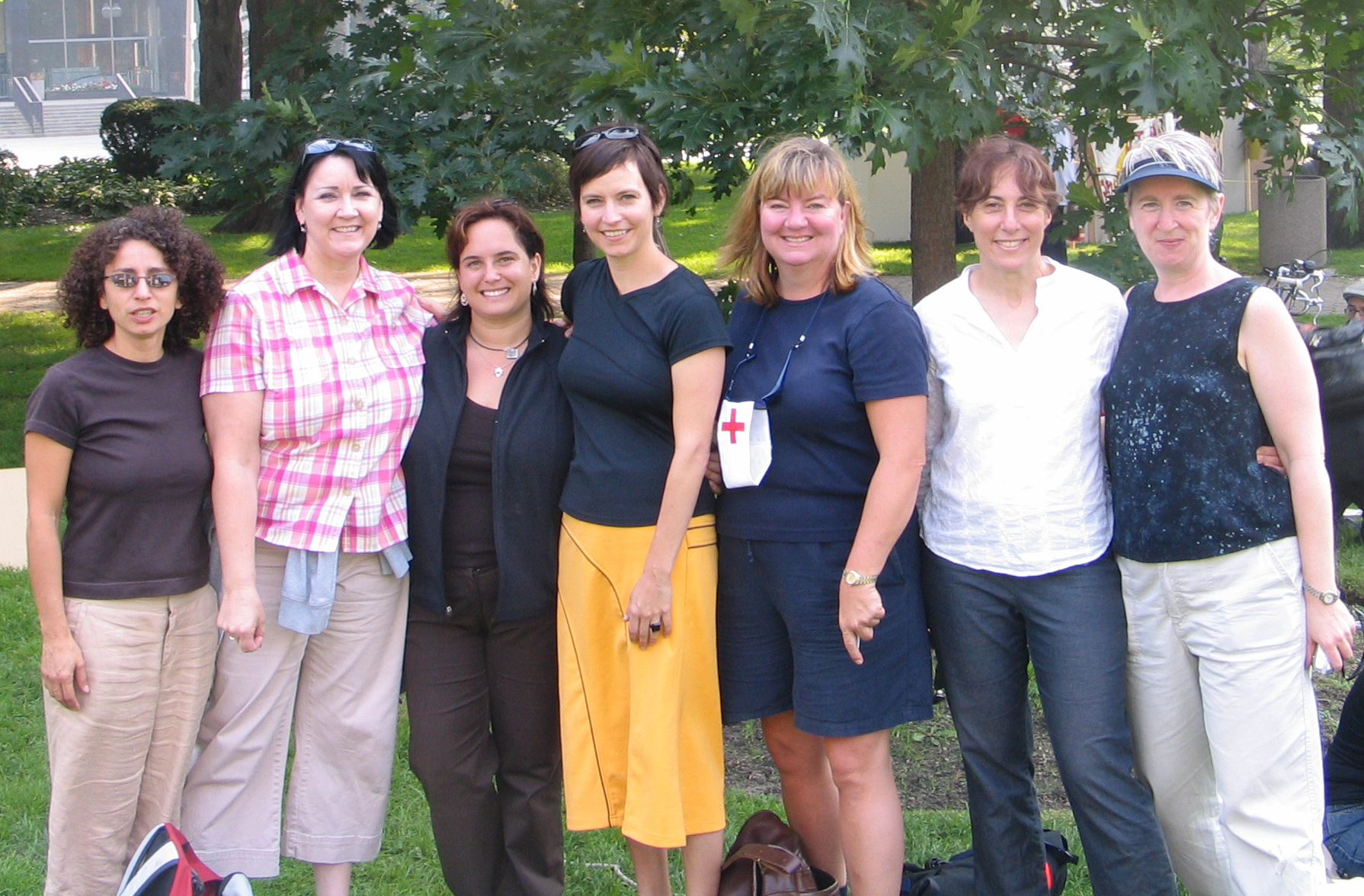
Regent Park CHC crew at Special Diet Clinic, Queen’s Park, 2005.
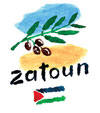
Zatoun is a project which brings fair trade olive oil from occupied Palestine.to North America. It provides beleagured Palestinian farmers with much-needed income, contributes to the Palestinian economy, and simultaneously serves to draw attention to the plight of Palestinian farmers and the destruction of their livelihood. It has also contributed funds to two Palelestian Projects: Trees for Life, and Project Hope.
Miriam became involved in Zatoun right at the beginning, in 2004, and committed herself to it as a great example of sustainable activism. In addition to selling phenomenal amounts of olive oil and other Zatoun products like za'atar and olive oil soap, Miriam devoted a great deal of time to setting up Zatoun tables are various fairs and events, and speaking at schools, mosques, and other venues.
Miriam also wrote a couple of articles about her involvement in Zatoun: Zatoun: Bridge-builder at a Crucial Time (written around 2005) and Resisting the Occupation with Olive Oil (written in 2014).
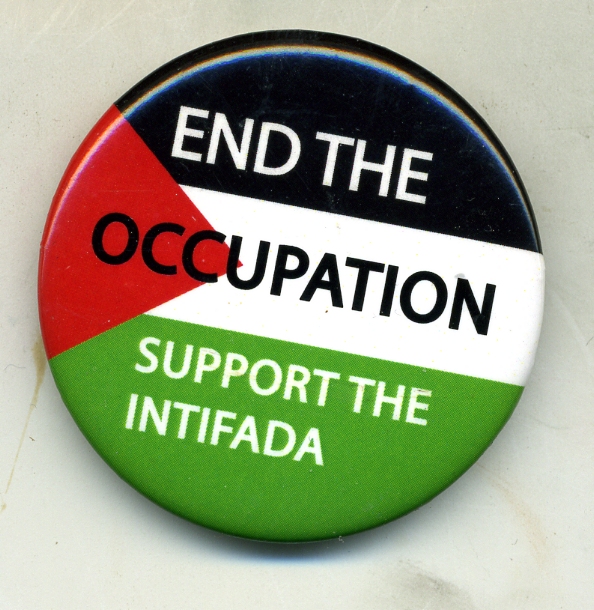
Vigil in front of the Israeli consulate
For many years, Miriam was a regular at the Friday afternoon vigils in front of the Israeli consulate. She went there in every kind of weather. People said she was a great example of how to talk to people, because she was very good at engaging them (“Would you like to know why we’re here?”) and explaining on their level.
There was always literature to hand out to passers-by who were interested in knowing more about the situation in Israel-Palestine. One of the regular handouts was a resource sheet which Ulli had prepared for Connexions. When her supplies were running low, which they did regularly because she was so good at connecting with people and encouraging them to educate themselves, she“d say “Ulli, I need more of the Connexions sheets!”
Jewish Voices for Peace and Justice. June 2003.
In 2003, Miriam helped organize a conference of Canadian Jews opposed to the continued occupation of the West Bank and Gaza by Israel.
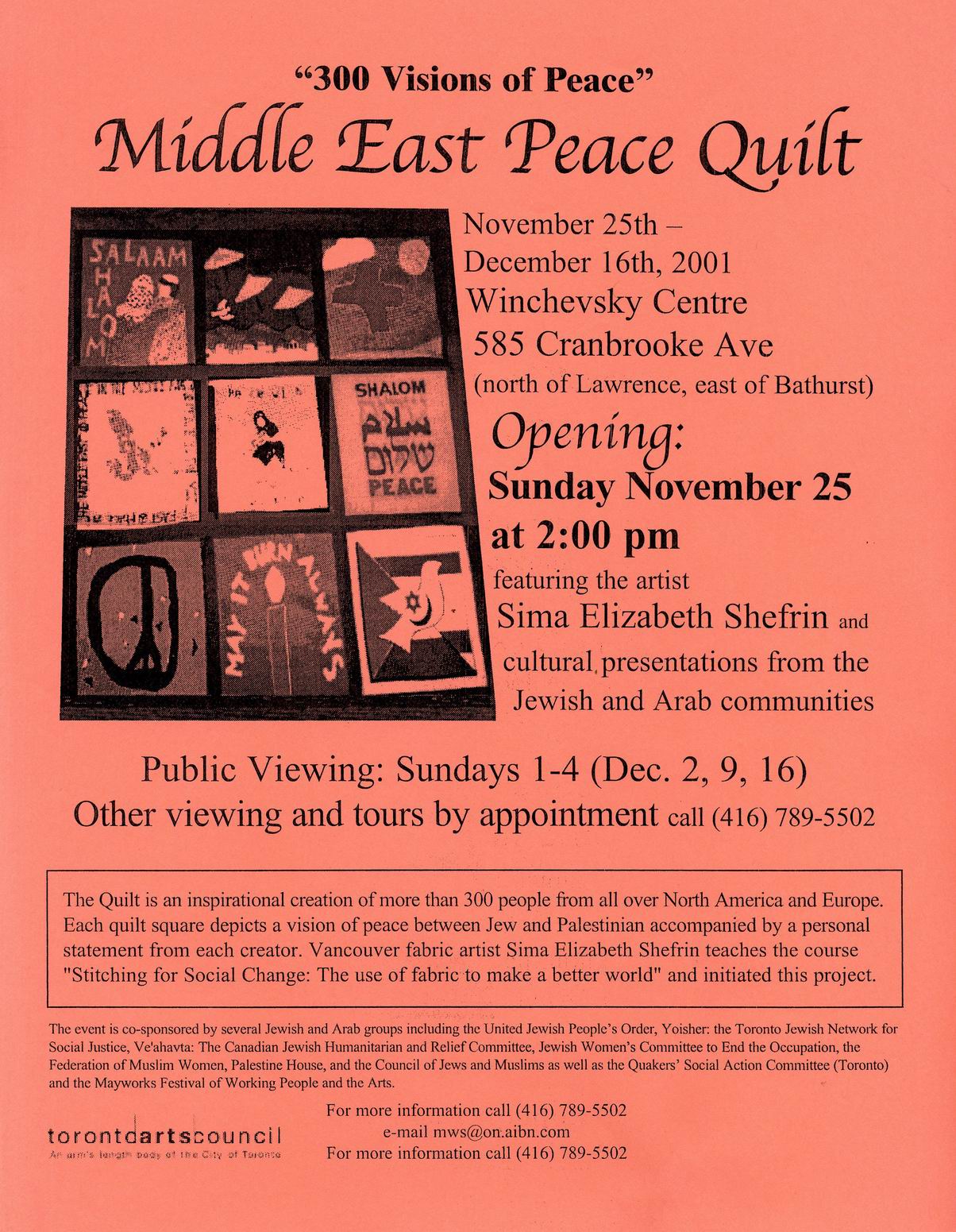
Middle East Peace Quilt. 2001.
The Middle East Peace Quilt is an international community art project, co-ordinated by Sima Elizabeth Shefrin, and made by over 300 people ranging in age from 5 to 85, including men and women, Jews and Palestinians and professional artists. In 2001, Miriam arranged to bring the Quilt to Toronto, where it was displayed at the Morris Winchevsky Centre through November and December. She fundraised, contributed money herself, arranged for a venue (Winchevsky Centre) and got media coverage for it.
Peace Messages are Wrapped in Quilt
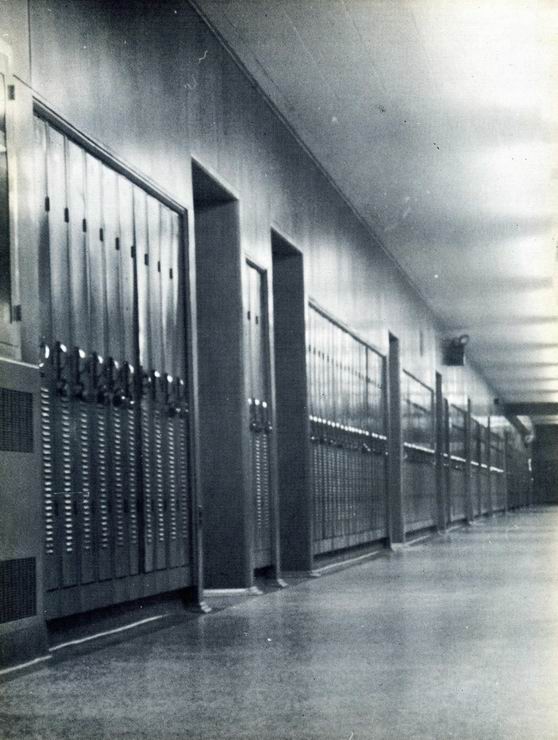
Respect Bathurst. June 2001.
Ulli and Miriam both attended the same high school in Toronto: Bathurst Heights. Bathurst Heights later became an important adult education centre as well as a high school. In 2001, in the wake of education funding cuts imposed by Ontario’s right-wing Progressive Conservative government, it was announced that Bathurst Heights would be closed. A final reunion and closing ceremony were planned for June 23, 2001. Adding insult to injury, the school administration invited Paul Godfrey, a senior Progressive Conservative backroom operative, to give a keynote speech at the closing ceremony.
Ulli and Miriam organized a campaign and petition asking that Godfrey be uninvited. The petition stated that “Paul Godfrey is one of the most influential behind-the-scenes power brokers in the Harris government. As such, he is deeply complicit in this government’s destructive policies, of which the closing of Bathurst Heights is one deplorable example.... Inviting a prominent member of the Progressive Conservative party like Paul Godfrey to commemorate the history of a school being shut down by his party’s policies is not merely inappropriate, but offensive to the community which is being harmed by these damaging cutbacks.“
Many former students and teachers signed the petition, which also attracted media coverage, but the invitation to Godfrey was not withdrawn.
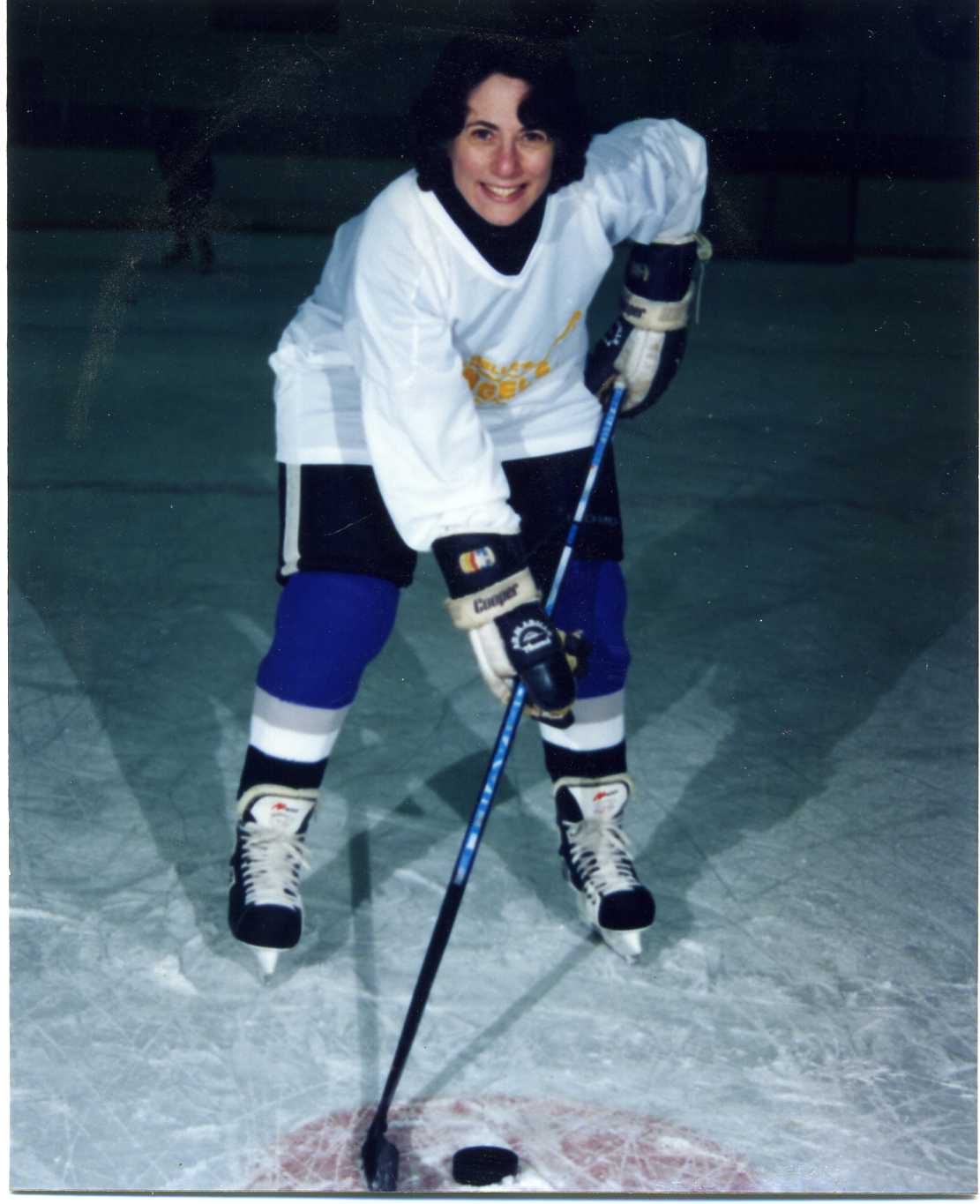
Founding women’s hockey league
When her children were old enough to start playing hockey, Miriam spent a lot of time at the local rink, Bill Bolton arena, watching their hockey games.
Thinking it would fun to play, but with no local women’s hockey teams to join, Miriam talked to other mothers and women in the neighbourhood about starting a women’s hockey league.
There was a lot of enthusiasm, and a women’s hockey league was born.
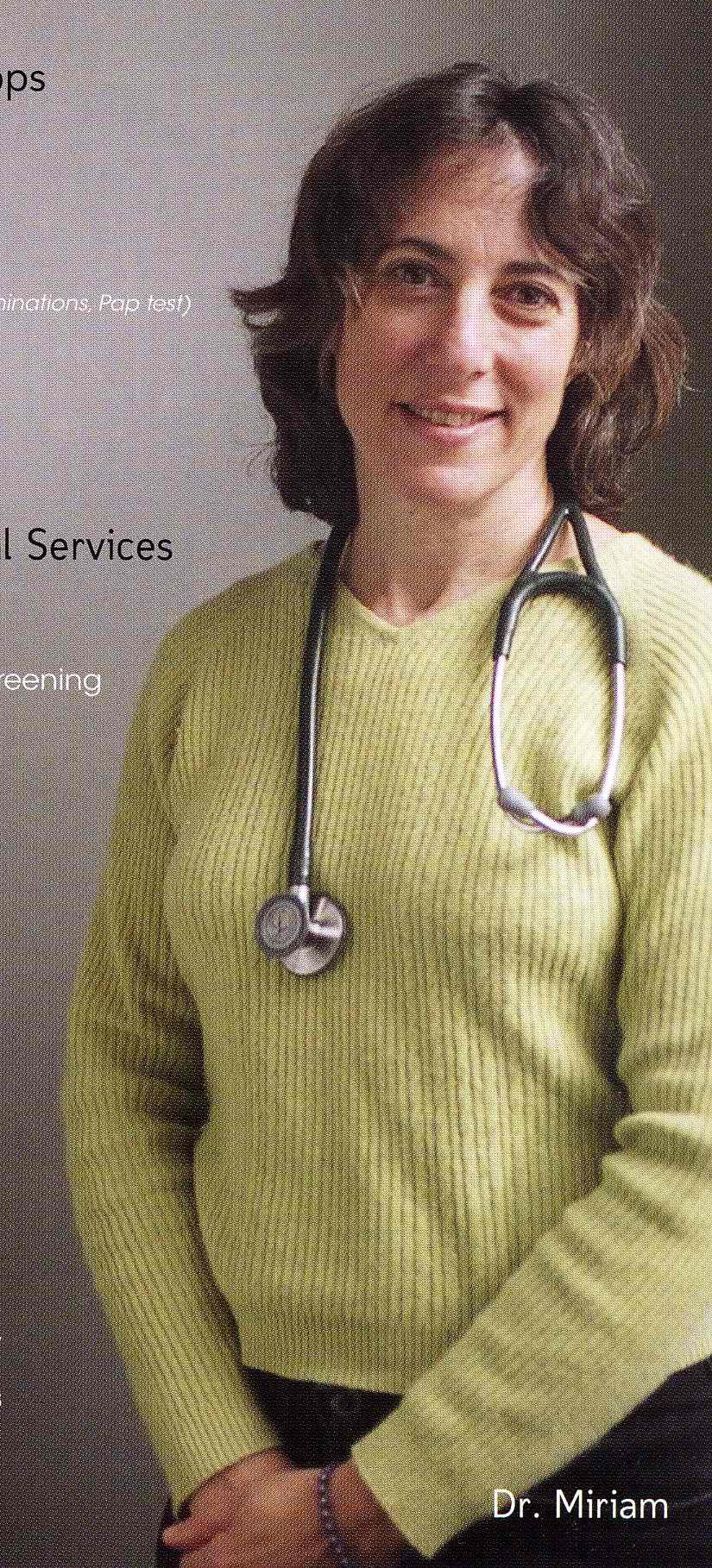
Immigrant Women’s Health Centre
Miriam originally went to work at the Immigrant Women’s Health Centre shortly after it was founded in the early 1980s. She was the first female physician to work there.
She later worked there again, on a part-time basis, for several years in the early- and mid-2000s. She mostly worked at the clinic on College Street, but also went out on the ‘bus’ – a mobile clinic that travelled to workplaces in the city to reach women workers who could not afford to take the time off work to come to the College Street clinic for an appointment.
In addition to her clinical work, Miriam regularly did advocacy for increasing government funding for reproductive health services, especially for immigrant women.
Traffic calming
Miriam was a key organizer in bringing traffic calming measures, specifically a road-direction reversal on Albany Avenue, to the neighbourhood she lived in back in the 1996-1997. She saw this, not only as a local issue, but as part of a strategy to reduce the use of cars in the city. She believed that for a variety of reasons (safety, pollution reduction, urban livability, and climate) we need to drastically reduce our reliance on motor vehicles. Miriam was influenced by Jane Jacobs’ writings on cities and on traffic, as laid out in The Death and Life of Great American Cities. She decided it would be good have Jane Jacobs’ support in the campaign, and, being Miriam, she immediately acted on the thought, and invited Jane to come over for dinner and talk strategy.
Years later, Miriam was involved in a similar campaign to bring traffic calming measures to Barton Avenue.
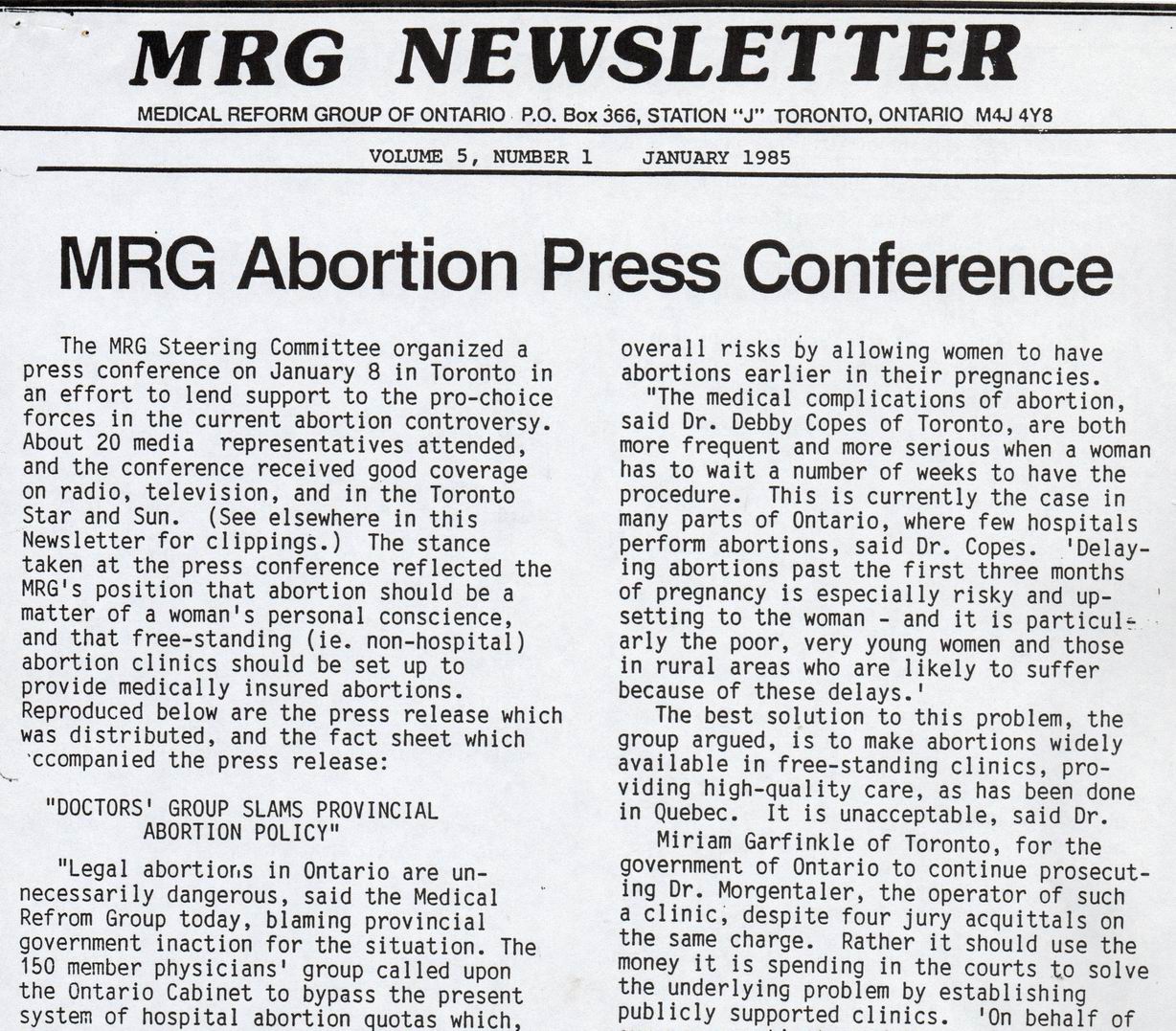
Supporting a woman’s right to choose an abortion
In the 1980s, when women seeking an abortion faced multiple obstacles, the Medical Reform Group of Ontario (MRG) took the position that abortion should be a matter of a woman’s personal conscience, and that free-standing (i.e. non-hospital) abortion clinics should be set up to provide medically insured abortions. Leading the MRG’s work in supporting the right to choose to have an abortion were Miriam Garfinkle and Mimi Divinsky.
In 1985, with an intense political battle underway over abortion, the MRG called a press conference to publicize its support for a woman’s right to choose an abortion if she so chose. MRG spokespersons at the press conference were Drs. Miriam Garfinkle, Debby Copes, and Bob James. The MRG Newsletter (edited by Ulli) provided MRG members with background information and talking points on the abortion issue. See also the June 1983 issue of the MRG Newsletter (page 5) for a previous update on the MRG’s, and Miriam’s, work in supporting choice.
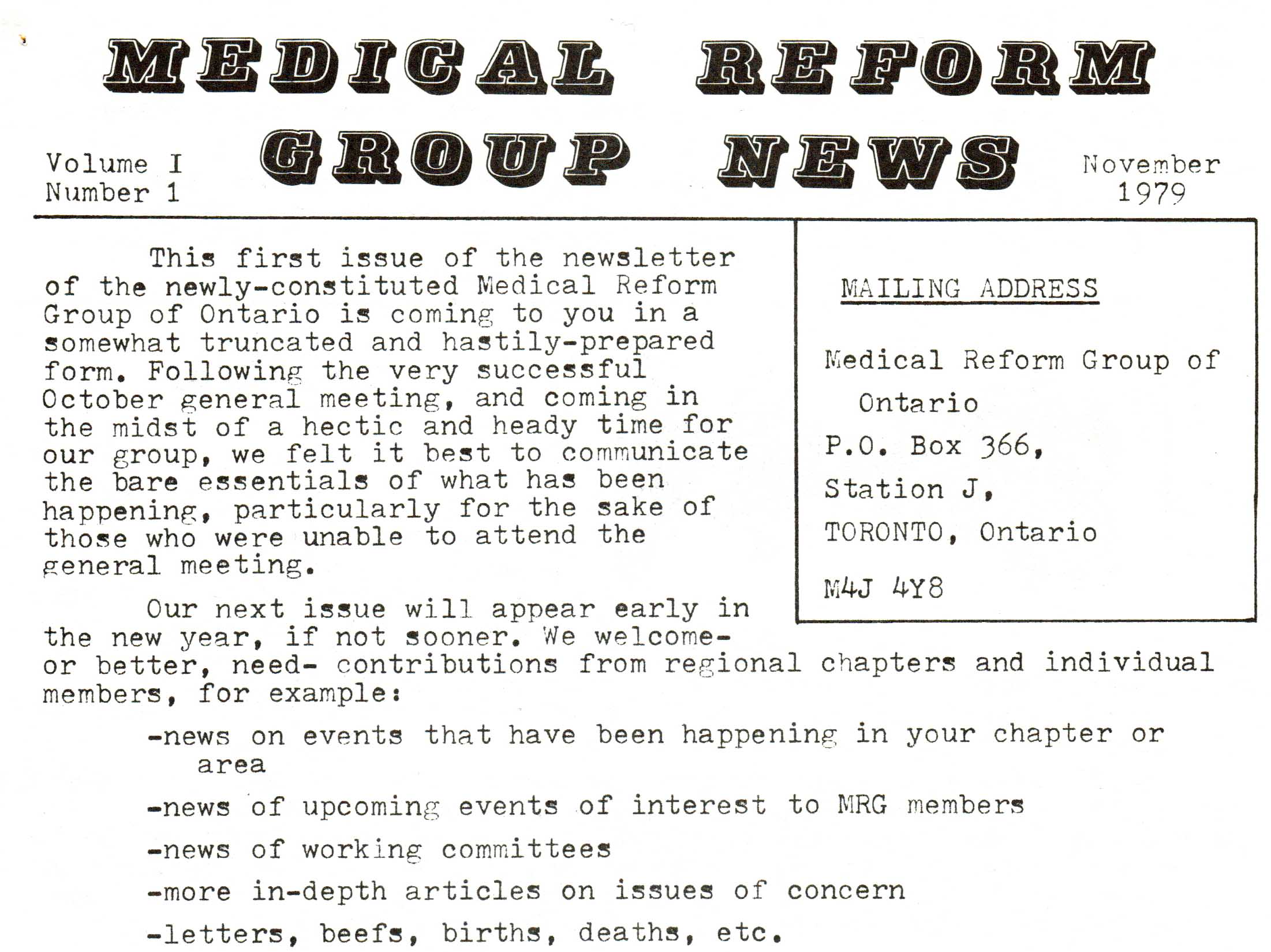
Miriam was one of the founders of the Medical Reform Group of Ontario. The first meeting took place in her living room.
The Medical Reform Group brought together doctors who were concerned that there was no voice for progressive, socially-conscious physicians in Canada. They did not feel a forum existed to address the social dimensions of health and disease. Members were united around three principles:
1. The universal access of every person to high quality, appropriate health care must be guaranteed. The health care system must be administered in a manner which precludes any monetary or other deterrent to equal care.
2. Health care workers, including physicians, should seek out and recognize the social, economic, occupational, and environmental causes of disease, and be directly involved in their eradication.
3. The health care system should be structured in a manner in which the equally valuable contribution of all health workers is recognized. Both the public and health care workers should have a direct say in resource allocation and in determining the setting in which health care is provided.
Miriam was involved in many aspects of the MRG’s work, especially in opposing barriers to health care such as user fees “extra-billing” by physicians, and in supporting the pro-choice movement in Canada.
To see newsletters published by the Medical Reform Group, see here. To see news releases issued by the MRG between 1979 and 1995, see here. For an article about the history of the Medical Reform Group (to 1994) see here.
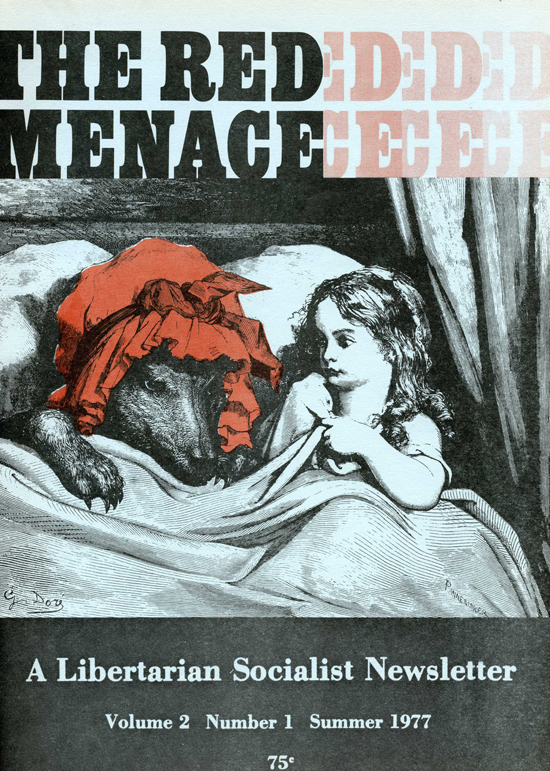
Toronto Liberation School / Libertarian Socialist Collective. 1975-1980.
From 1975 to 1980, Miriam was a member of the Toronto Liberation School. The Toronto Liberation School (the name was later changed to Libertarian Socialist Collective) was a libertarian-socialist Marxist group which engaged in various forms of popular education, including courses on subjects such as the politics of food, children’s liberation, capitalism and the environment, and Marxist praxis. The group also published a newsletter, The Red Menace, and had regular meetings to discuss a wide range of issues, such as feminism and women’s liberation, the role and future of labour unions, the role and dynamics of families, sexual liberation, and workplace experiences.
The group briefly summarized its political orientation as follows: “We want to overthrow the capitalist system and build a new world in which freedom and creativity can flourish, a world in which people are in control, in which they run things democratically and collectively. A libertarian socialist world.”
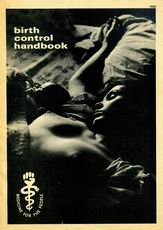
Handing out the birth control handbook
Around 1970, a university-based women’s group set out to connect with young women still in high school, and started handing out information about birth control and reproductive rights near a number of Toronto high schools. Miriam, herself still in high school, became aware of what they were doing, immediately offered to help, and became involved in the group. She took on the task of handing out copies of the recently published McGill Birth Control Handbook, which in addition to birth control information, also provided information about abortion, then illegal in Canada, and additionally provided a very political view of women’s rights.
As one of the members of that women’s group wrote about Miriam recently, “Being such an activist – both for women’s rights and health care access and justice – she enthusiastically became involved with the group. It was inspiring to be connected to a person with such commitment and energy!”
For her last year of high school (1971-72), Miriam switched to an alternative high school, AISP (which she had helped found). AISP allowed her the freedom to arrange non-traditonal learning opportunities. Miriam made arrangements to study and use an electron microscope at the Ontario Science Centre for a science credit, and she persuaded the University of Toronto to allow her to register for a newly founded Women’s Studies course at U of T even though she was a high school student.
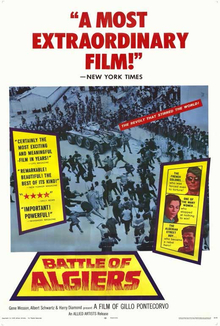
Questioning Zionism
Miriam’s parents sent her to Zionist summer camps. Miriam loved many aspects of the camp experience, but she increasingly came to question what she came to see as the indoctrination campers were being subjected to. She asked questions and challenged the camp leaders. Why were they learning about the Nazi genocide of the Jews, but saying nothing about the genocide in Biafra which was happening in Africa at that very moment? As Miriam says, the camp experience caused her to feel “the dissonance of my own identity as a Jewish universalist.”
In 1971, Miriam saw Gillo Pontecorvo’s film The Battle of Algiers and, as she says, “a light went on in my head.” Suddenly she saw the parallels between the anti-colonial struggles of the Algerians and the Palestinians. Already a determined and effective organizer at the age of seventeen, Miriam proceeded to rent the film, arranged for it to be shown at the local theatre in the town near her camp, and organized a bus to bring campers into town to watch it. On the bus, she handed out copies of the PLO manifesto to her fellow campers and stimulated a wide-ranging discussion.
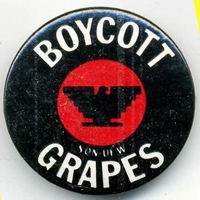
Support for striking farmworkers
Starting when she was 14 years old, Miriam joined the Toronto solidarity campaign for California farmworkers and started picketing the local supermarket at Lawrence and Bathurst on Saturdays in support of the grape boycott called by the United Farmworkers union in their struggle to win union recognition and better pay and working conditions.
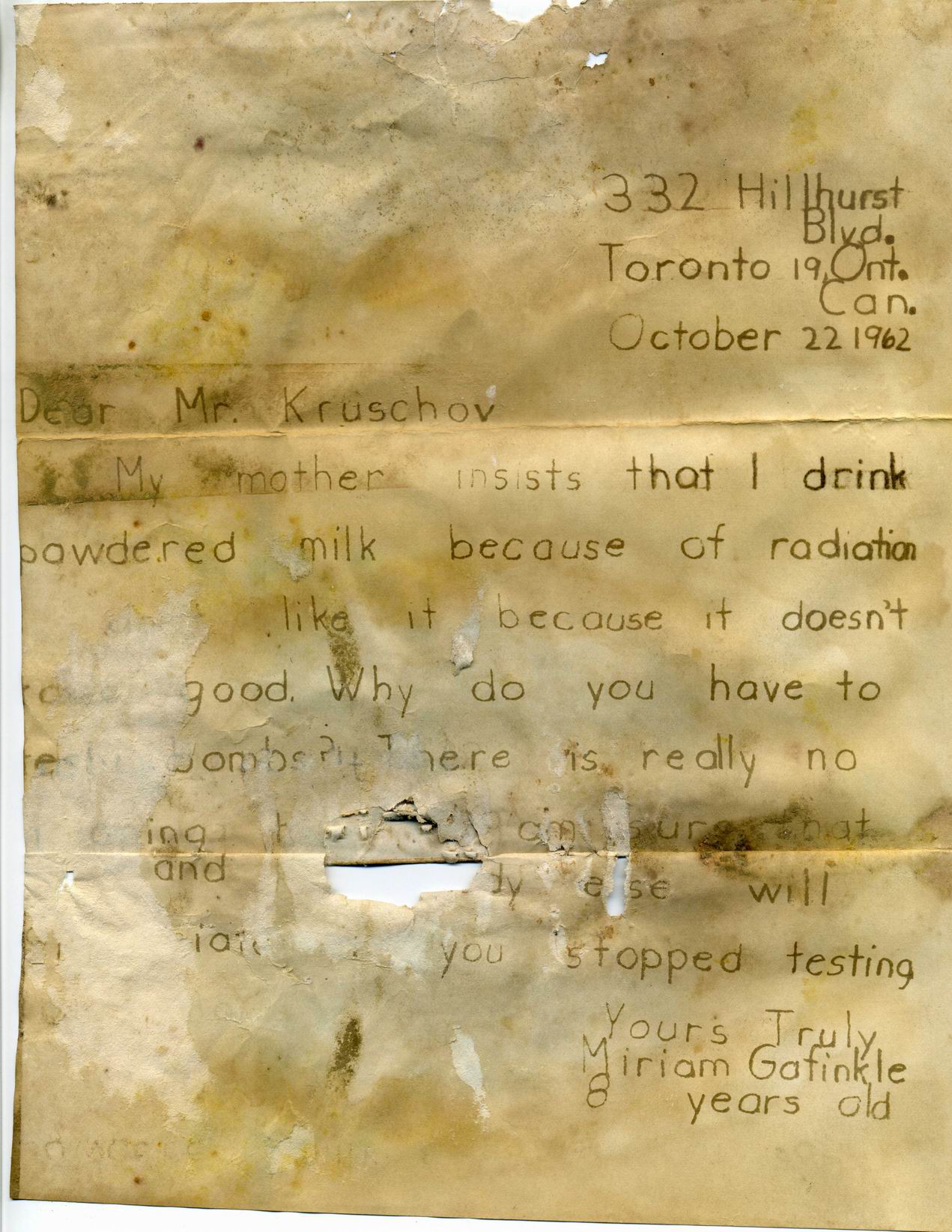
When Miriam was 8 years old, she wrote to U.S. President Kennedy and Soviet Premier Khrushchev, asking them to stop testing nuclear bombs. She told them, “There really is no meaning to it,” and added “I am sure that me and everybody else will appreciate it if you stopped testing.”
She continued to oppose militarism, war, and imperialism throughout her entire life.
Articles, Statements, Speeches, Interviews
Resisting the Occupation with Olive Oil or PDF 2014.
Open Letter: Health Care Providers Support OPS and SCS. September 5, 2018. Days before she died, Miriam gave her support to this statement.
An Open Letter from Jewish Academics and Elders Regarding False Allegations of Student Anti-Semitism. November 13, 2017
Ontario’s Health Workers Call for Improved Sick Leave Policies. 2017.
Open Letter on the Coming Crisis in Scientific Research. February 22, 2017.
An Open Letter from Jewish Canadians in Support of Nadia Shoufani. September 2, 2016.
Line 9 pipeline is a risky business. March 23, 2016
Letter Regarding Canada’s Extradition Law and the Case of Dr. Hassan Diab. November 2014.
Miriam’s Regent Park CHC Retirement Speech. September, 2014.
Fill the Gap: Ontario Should Insure Injured Migrant Workers. April 8, 2014.
Deputation to the Toronto Board of Health. December 9, 2013.
Denying health coverage to injured migrant workers is shameful. September 18, 2013
Porter’s corporate interests can’t be allowed to trump public health. 2013.
Deputation Opposing Island Airport Expansion. 2013.
Some pumpkin recipes: Turn your Hallowe’en pumpkins into delicious and nutrious food. 2012.
Talk on a panel at the School of Social Work: Can ‘good’ Jews be critical of Israel?. December 1, 2011
Canadian Health Professionals Support Flotilla 2 and its Mission to Break the Siege of Gaza. July 2, 2011.
Presentation to United Church Toronto Conference AGM. May 2009
Jewish Canadians Concerned About Suppression of Criticism of Israel. March 10, 2009.
Canadian Health Professionals Call for Ceasefire and Ending the Siege of Gaza. February 9, 2008.
Canada Has Blood On Its Hands. February 7, 2009.
Break the Silence Against the Siege of Gaza. November 19, 2008.
The occupation of Gaza and the West Bank must end. September, 2008.
Speech at Dr. Khan’s Talk. May 20, 2008
Health Care Professionals In Canada Join with PHR-Israel. May 2008.
Gaza: Health System in Collapse. 2008.
Health care and children in crisis in Gaza. 2007.
Also available in Arabic,
French,
German,
Italian,
Polish,
Portuguese,
Spanish.
Canadian Health Professionals Join the International Call to End The Humanitarian Disaster in Gaza. December 15, 2007.
Speech to Fundraiser for Gaza. March 25, 2007
TOGETHER for GAZA: Palestinians and Jews work together to act on the health crisis in Gaza. March 15, 2007.
Province Must Treat Health Centre Staff Fairly. January 12, 2007
Looking at Israel from the other side. (Book review: 2006)
Humanitarian Situation in the Occupied Territories, Lebanon, and Israel. August 16, 2006.
Medical emergency in the Occupied Territories and in Lebanon: Non-conventional weapons. August 11, 2006.
Statement of Concern for the Public Health Situation in Gaza. July 31, 2006. Also available in German .
Zatoun: Bridge-builder at a Crucial Time.
My Mom, Mastectomy and Me. September 9, 2004.
Dave Kashtan: A Eulogy. December 12, 2003.
We can’t afford a dim view: Deputation at City Hall regarding funding for women’s health clinics.
Jimmy Garfinkle: A Eulogy. November 5, 1984.
See a copy of the booklet from the November 5, 1984 Memorial for Jimmy Garfinkle here.
Progressive doctors condemn opting out. 1982.

`
Letters
Ontario Health-Care Reform and Community Health Centres. January 7, 2017.
Legal Case Deserves Support. October 26, 2016.
Line 9 Pipeline Needs Review. January 31, 2016.
Don’t Toss Out Your Pumpkins. October 30, 2015.
Spirit of Truth and Reconciliation Already Broken. June 29, 2015.
Time to Break Silence on Gaza Assault. May 10, 2015.
Rail Disaster Strategy Lacking. March 16, 2015.
Airport Expansion. February 20, 2015.
Shut Down the Tarsands. December 10, 2014.
Medical Programs for Homeless. September 9, 2014.
Gaza Headline Absurdly Inaccurate. July 19, 2014.
Diminishing residential schools abuse?. June 28, 2014.
No Compassion on Immigration. March 3, 2014.
Regent Park Story Not so Simple. March 3, 2014.
Pete Seeger Was the Best of Us. February 2, 2014.
Letter to Toronto City Council regarding jets at Toronto Island airport. August 3, 2013.
Plan Already Disastrous. September 8, 2013.
Little Regard for Poor Countries. September 15, 2012.
Health Care is for Everyone. May 14, 2012.
Charity Nice, but No Solution. December 27, 2011.
Pipeline Follies. November 19, 2011.
The School Funding Debate. March 1, 2011.
Letter to Mayor Ford regarding funding for Immigrant Women’s Health Centre. January 9 2011.
A Second Tier in Public System. April 14, 2009.
The single-state solution. May 16, 2008.
Sewage Disaster in Gaza. March 2007.
Israel’s Use of Cluster Bombs is a War Crime.
Desperate Situation in Gaza. August 2006.
Letter to Metro Morning. May 11, 2005.
Response to Toronto Sun article. September 1, 2001.
Letter to CBC Producer Ira Basen. November 8, 1997.
Letter to Ontario Minister of Education and Training, John Snobelen. March 4, 1997
Community is my family’s support system. July 8, 1995.
Letters to U.S. President Kennedy and Soviet Premier Krushchev. October 1962.
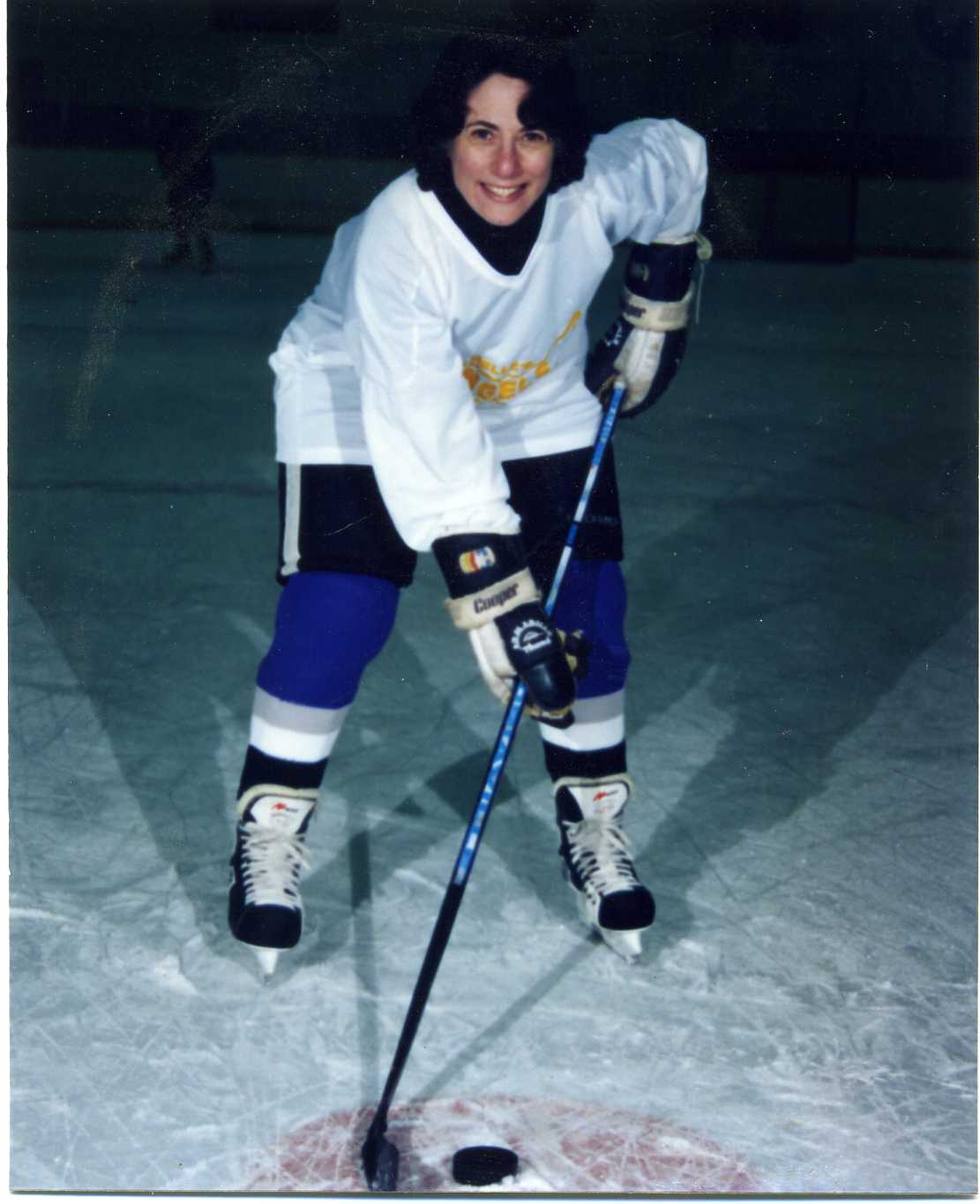
In the News
Making mid-life changes
Judy Steed writes: “A year ago Garfinkle caused shock and tears among her patients – I was one of them – when she announced she was giving up her practice. We were bereft. We hadn’t realized how much we’d come to rely on our family doctor until she told us she was leaving; she carried our personal and family history in an intimate way no one else did.” – Toronto Star, December 28, 2001.
Jewish dissenters speak out over Gaza
On Wednesday, a dozen Jewish women “occupied” the Israeli consulate on Bloor St., demanding an end to the Israeli siege of Gaza. The women expressed “outrage at Ottawa’s refusal to condemn the massacres,” said spokesperson Miriam Garfinkle. They urged the media to report that “many Jewish-Canadians do not support Israel’s violence and apartheid policies.” – Toronto Star, January 11, 2009
Olive oil, opposition and Gaza
Rick Salutin writes: “On Tuesday, I wrote my friend and sometime doctor, Miriam Garfinkle, to say I’d run low on the olive oil, from Palestine, that she sells. She is normally diligent, even fanatical, about it. It soothes her, she says, as she has grown ever more distressed by Israel’s occupation there, and more involved in dissident Jewish actions.... Then, on Wednesday, I saw in the news that she was among a group of Jewish women who occupied the Israeli consulate in Toronto.” – Globe & Mail, January 9, 2009.
Death becomes rallying cry
Miriam Garfinkle joined other friends and activists yesterday to remember homeless man Paul Croutch, who was beaten to death in Moss Park. – 24 Hours, September 16, 2008
Women behind the Wheel
– The Medical Post, March 20, 2007.
Brasileira Consegue Compaixao Humanitaria Em Aprovacao Surpreendente
– Brasil News, December 5, 2006
Immigrant women face barriers to health care
The young woman stumbled into a mobile heath unit parked in a northeast Toronto factory district. She was obviously ill, and everyone in the van rushed to help her. But she didn’t speak English, and no one could speak her language, either. “This woman struggled to come to us for help, but no one spoke her dialect,” recalls Dr. Miriam Garfinkle, medical director of the Immigrant Women’s Health Centre. – Toronto Star, October 4, 2003.
Quilt Gives Peace a Chance
Miriam brings Middle East Peace Quilt to Toronto. – November 25, 2001
Peace Messages are Wrapped in Quilt
The Middle East Peace Quilt comes to the Winchevsky Centre. – November 24, 2001
Private-school debate grows
The Harris government’s plan to provide tax-credit funding to private schools meets with widespread public opposition. Miriam speaks at a public meeting called to oppose the scheme, saying it will undermine public education. – Globe & Mail, May 25, 2001
Hockey Doc
To say Dr. Miriam Garfinkle practises in this city has a double meaning. – Family Practice, 1997
Boys: Do you know where your mothers are?
Dr. Miriam Garfinkle got tired of being just the mom in the stands. She instigated the uprising from fan to player at her son’s house league championship team party. – Toronto Star, June 17, 1997
The doctors who care — also as PDF
“We aren’t the Ontario Medical Association, that’s for sure,” grinned Dr. Miriam Garfinkle, a family physician, 31 this week, and a woman with a thoughtful, calm manner. – Globe & Mail, April 25, 1985
Ontario group wants earlier, easier abortions
A group of 150 Ontario physicians has called for the establishment of free-standing abortion clinics because they say the current system is “unnecessarily dangerous....” Dr. Miriam Garfinkle of the group said it was unacceptable for the government to continue prosecuting Dr. Morgentaler for operating a free-standing clinic “despite four jury acquittals on the same charge.“ – The Medical Post, January 22, 1985
Abortion faster safer in clinics MDs’ group says
Ontario should permit abortion clinics because they allow women to have abortions earlier in their pregnancies when there far less health risk, a group representing 150 Ontario doctors said yesterday. – Toronto Star, January 9, 1985
Government assailed on abortion policy
Dr. Miriam Garfinkle, a Toronto family physician, said the province should recognize Dr. Henry Morgentaler’s Toronto abortion clinic and similar facilities that other doctors would establish. – Toronto Sun, January 9, 1985
MRG Abortion Press Conference
It is unacceptable, said Dr. Miriam Garfinkle of Toronto, for the government of Ontario to continue prosecuting Dr. Morgentaler, the operator of such a clinic, despite four jury acquittals on the same charge. Rather it should use the money it is spending in the courts to solve the underlying problem by establishing publicly supported clinics. – MRG Newsletter, January 1985
United Church Observer issue on medicare, with Miriam on the cover
– United Church Observer, March 1984.
Photo Albums
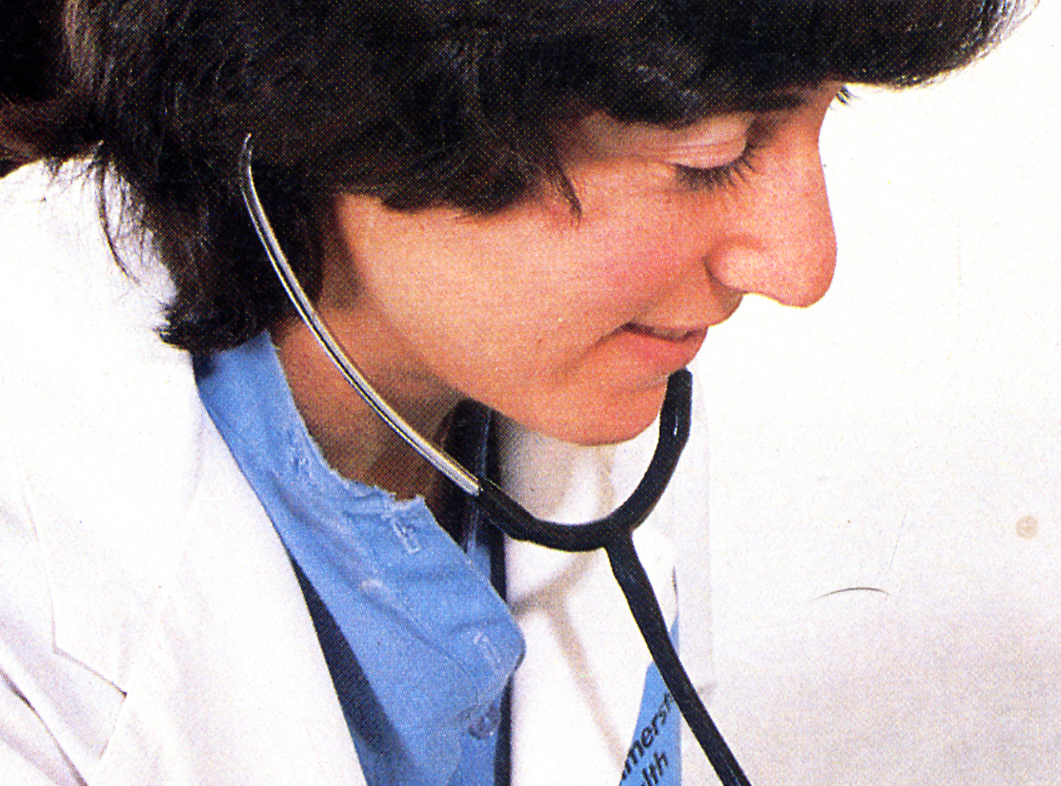
|
Miriam Garfinkle Photo Album #1 |
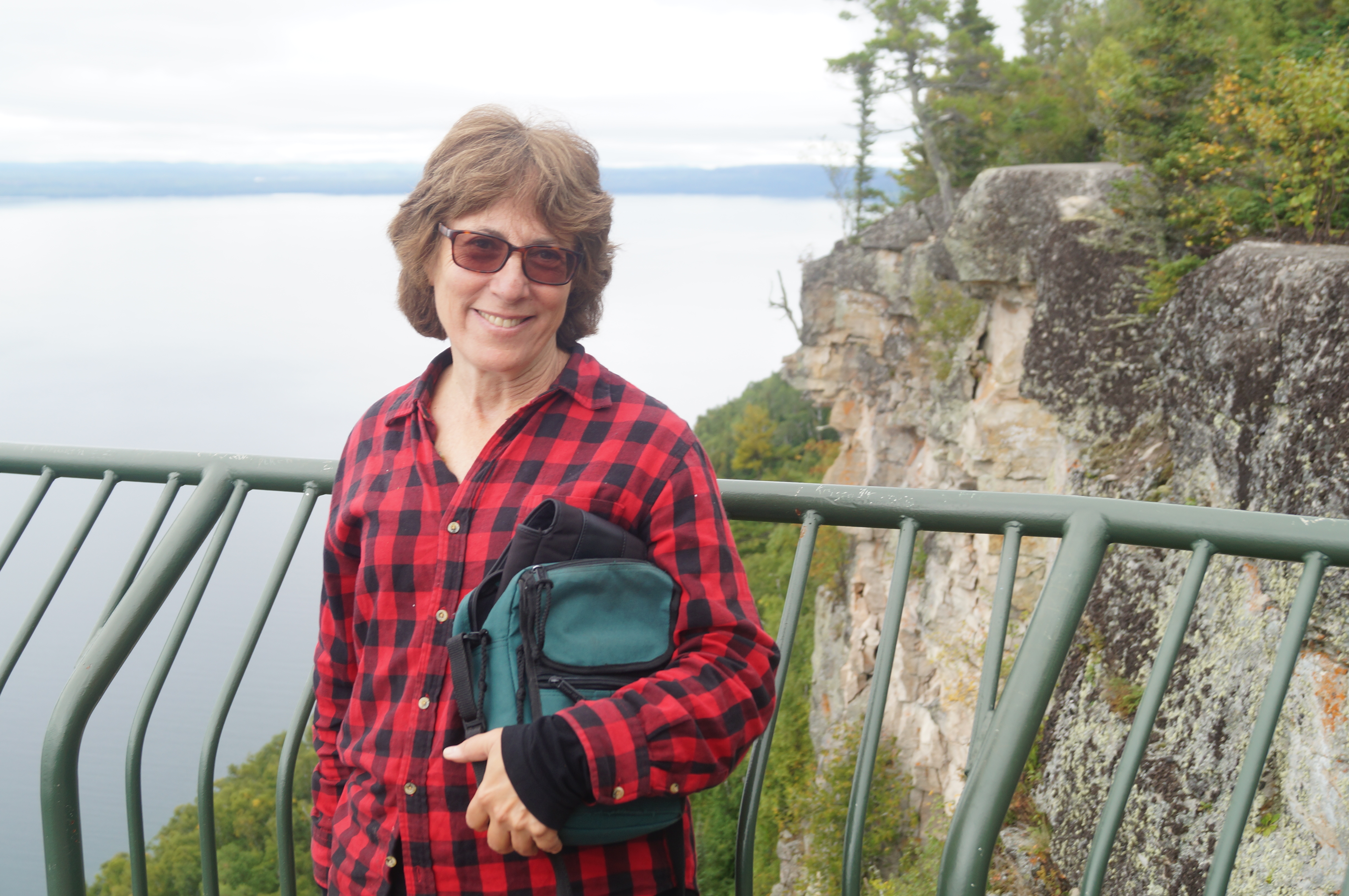
|
Miriam Garfinkle Photo Album #2 |
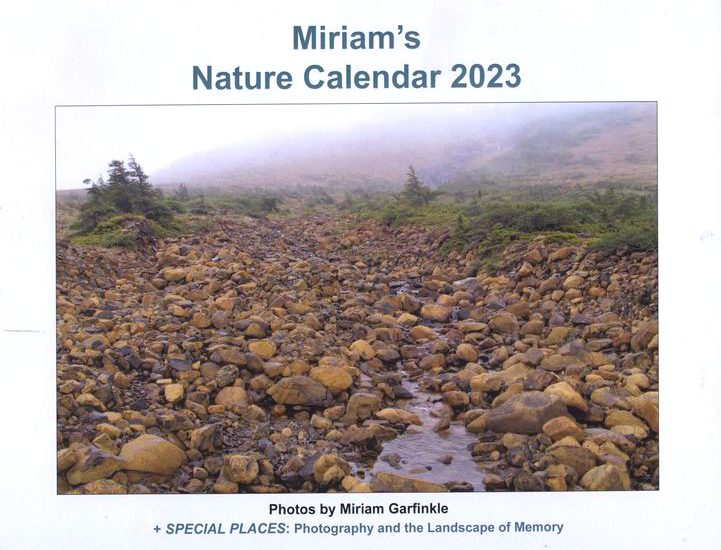
|
2023 Calendar featuring Miriam’s nature photos |

|
2022 Calendar featuring Miriam’s nature photos |

|
2021 Calendar featuring Miriam’s nature photos |

|
2020 Calendar featuring Miriam’s nature photos |

|
2019 Calendar featuring Miriam’s nature photos |
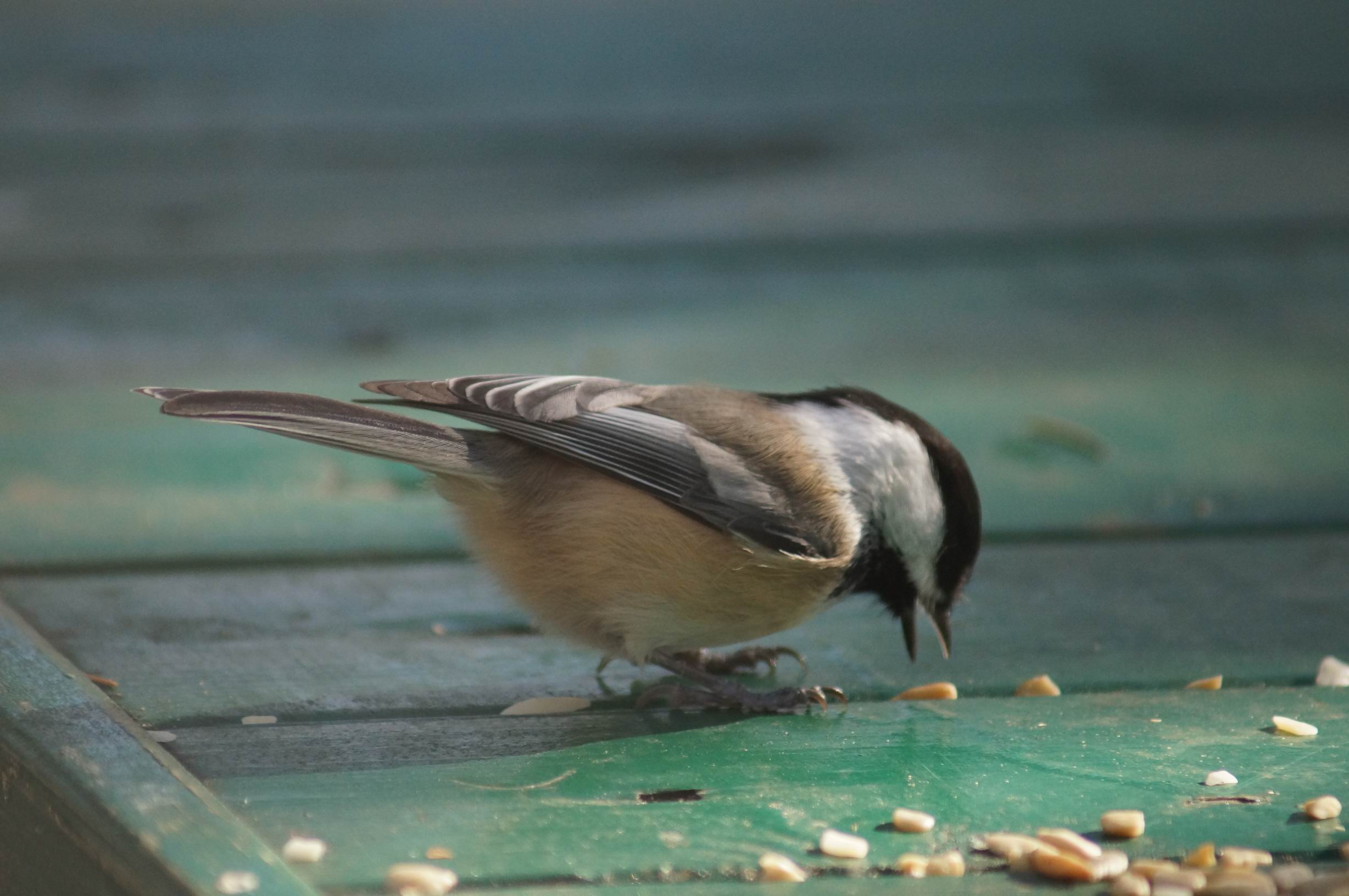
|
Photo Album: Miriam’s Nature Photos #1 |

|
Photo Album: Miriam’s Nature Photos #2 |
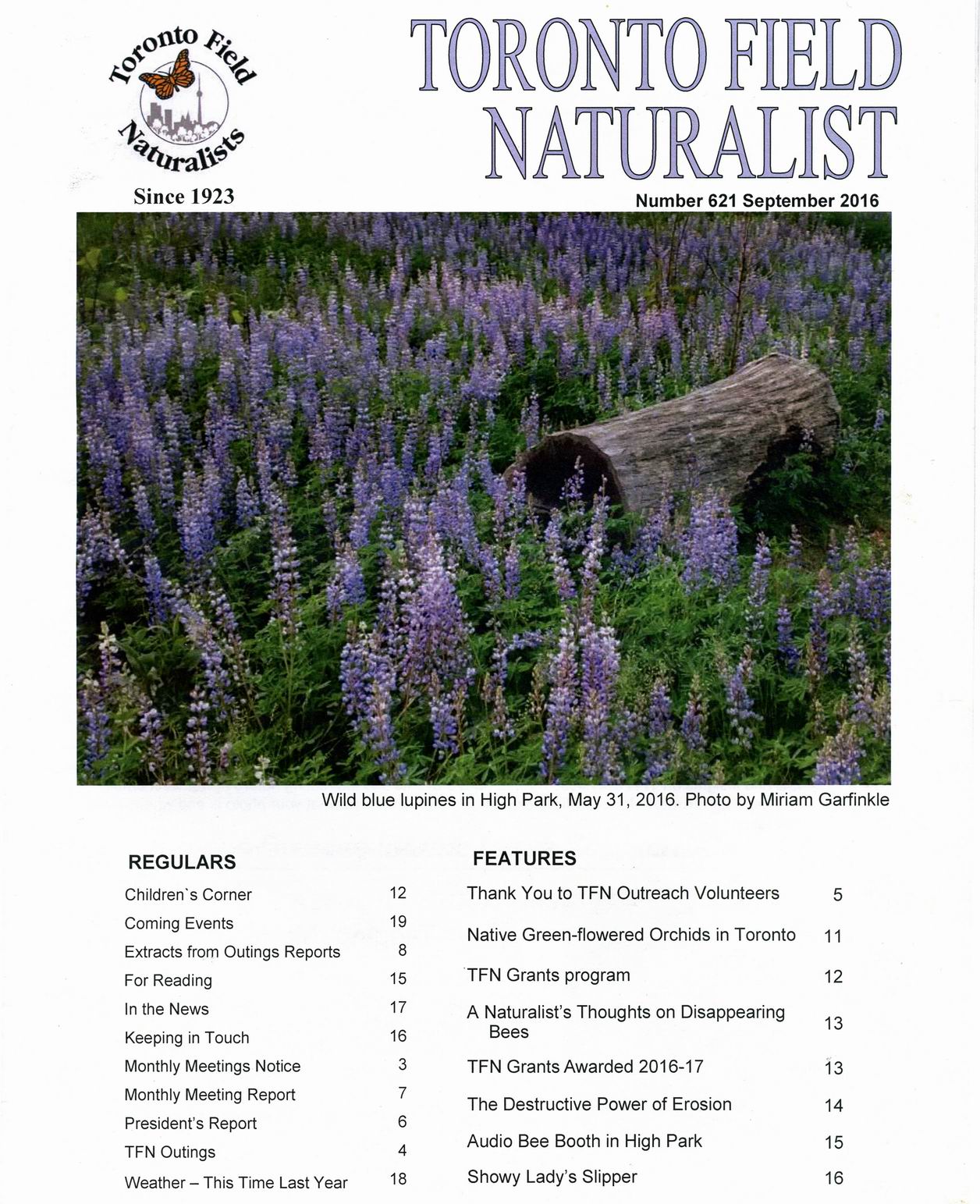
|
Photo Album: Miriam’s Toronto Field Naturalist Photos |
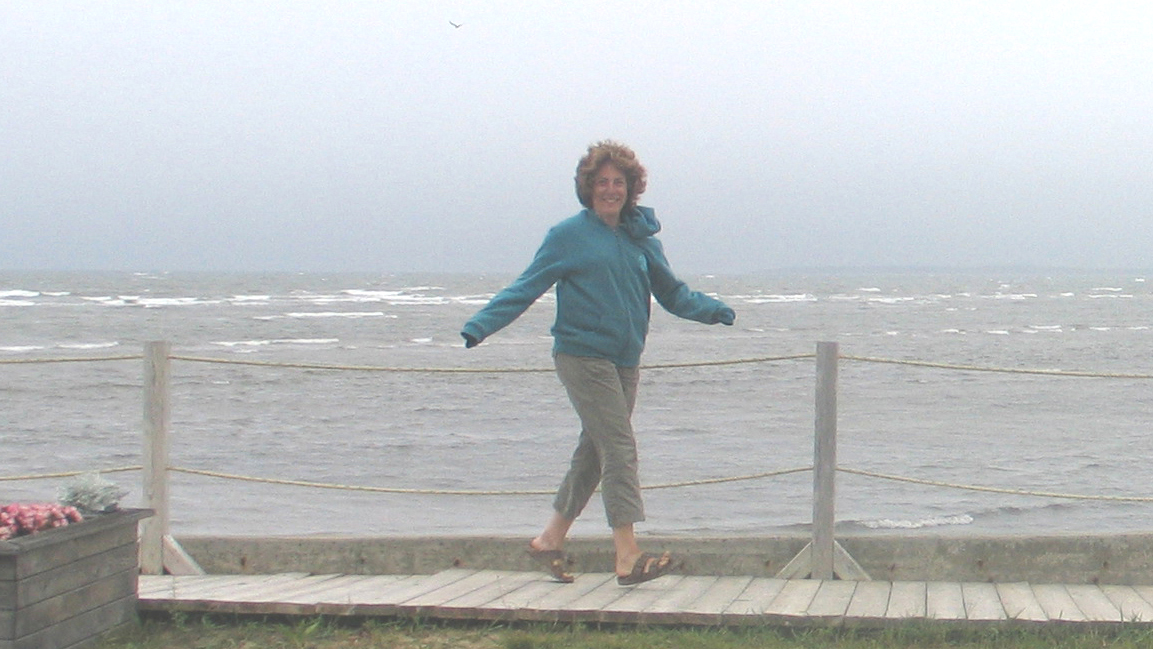
On the shore, near Caraquet, New Brunswick, 2012